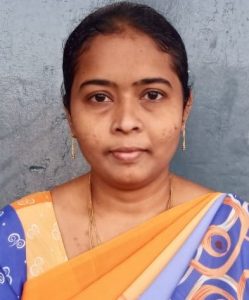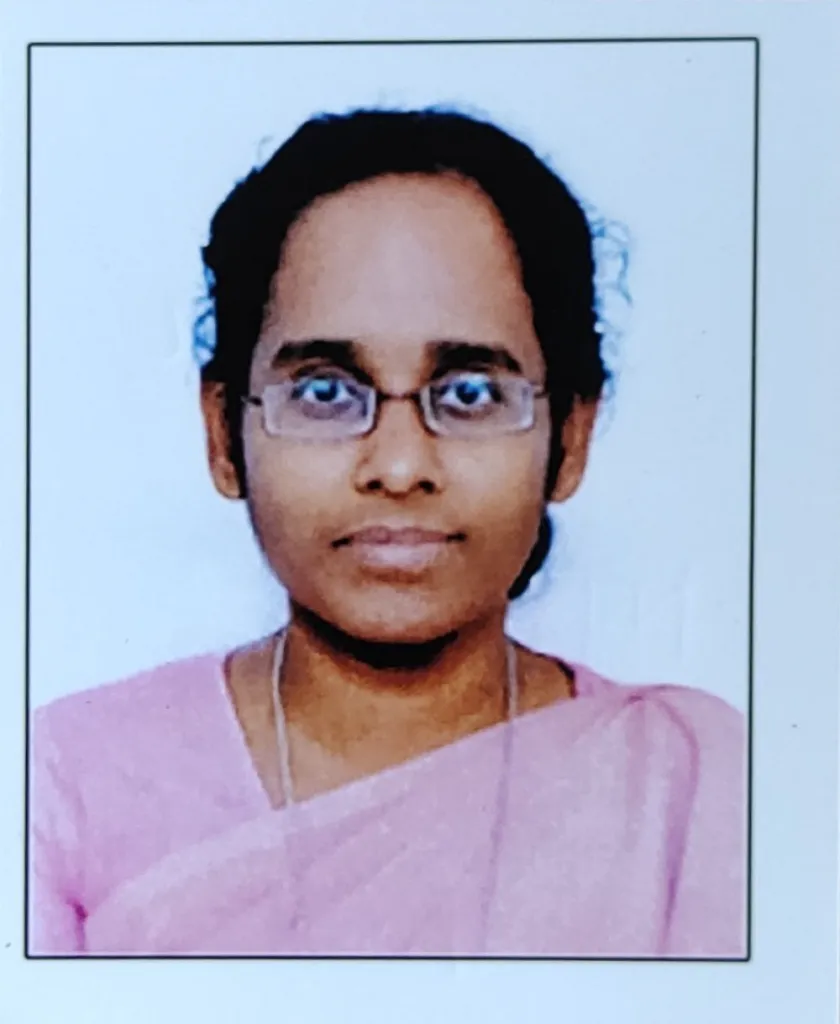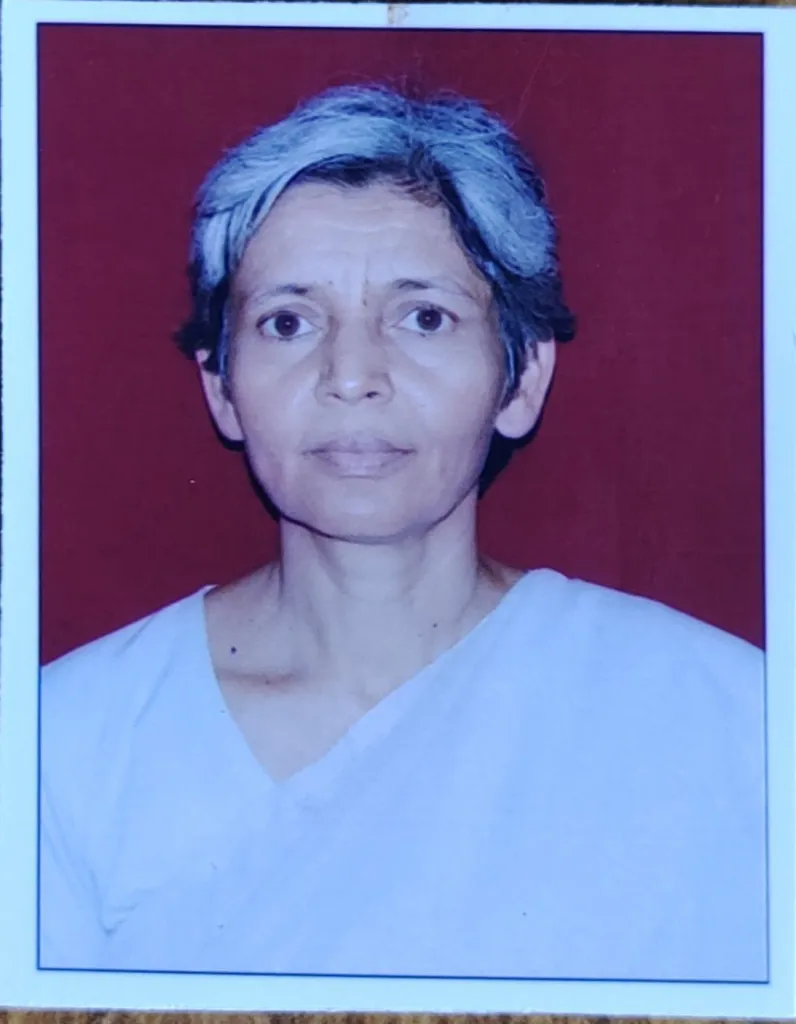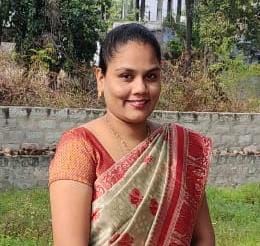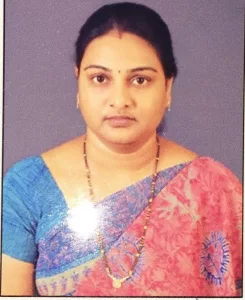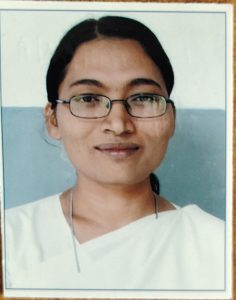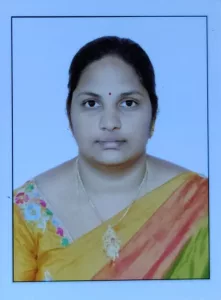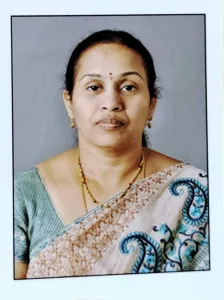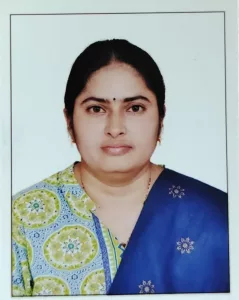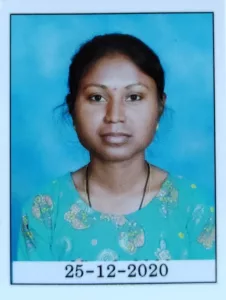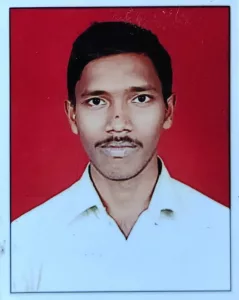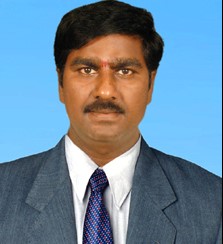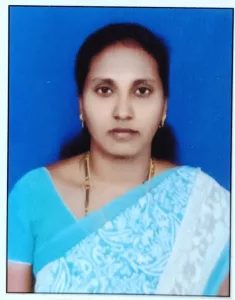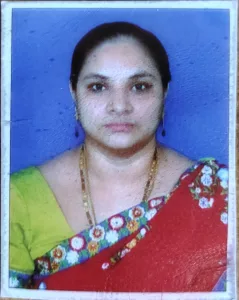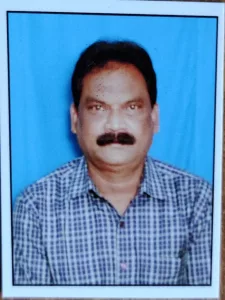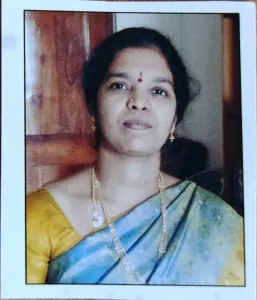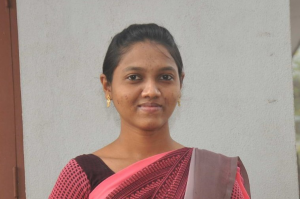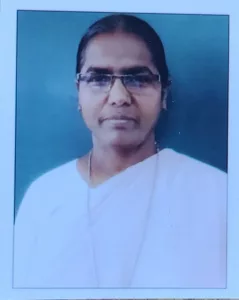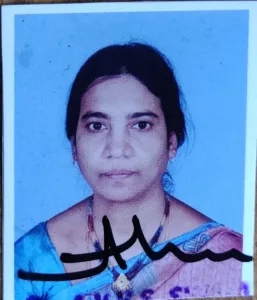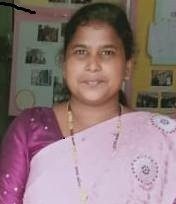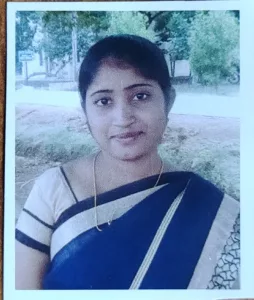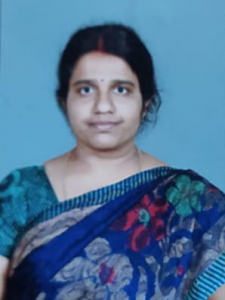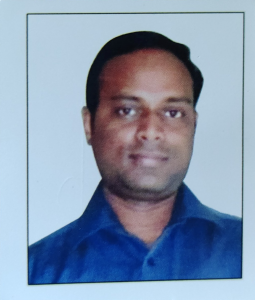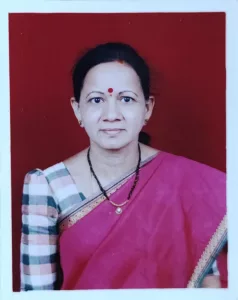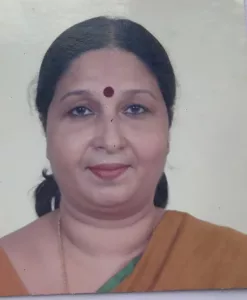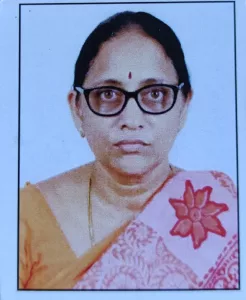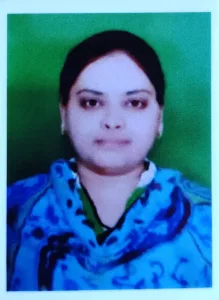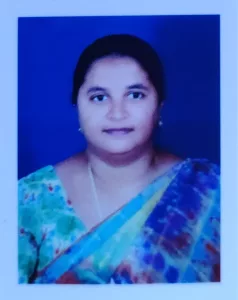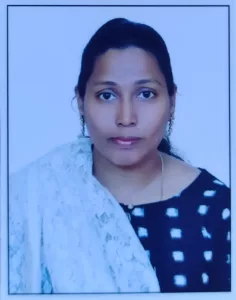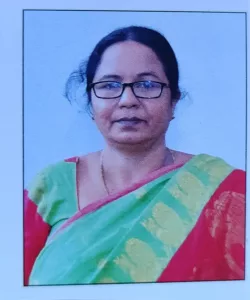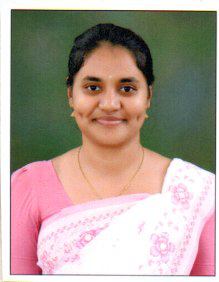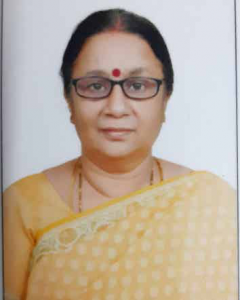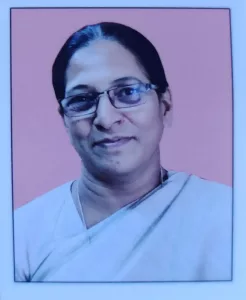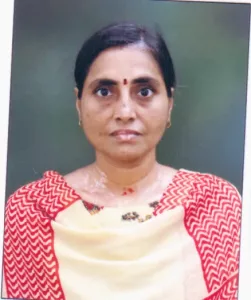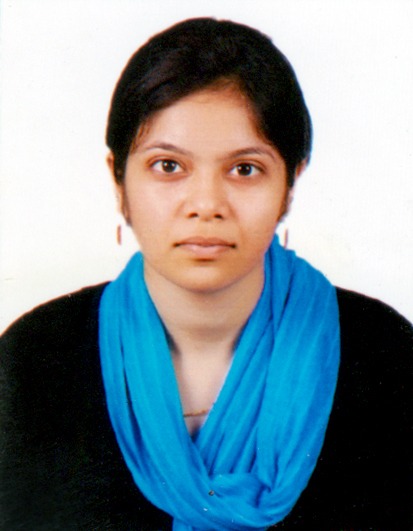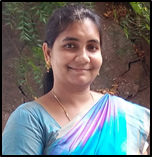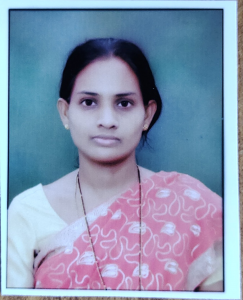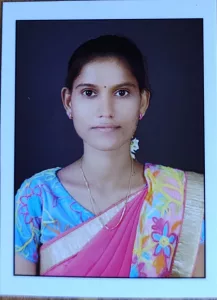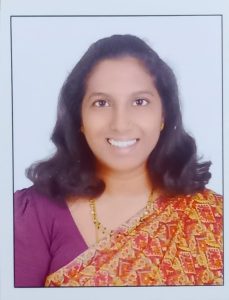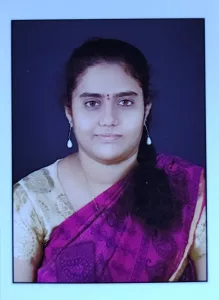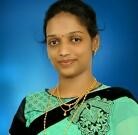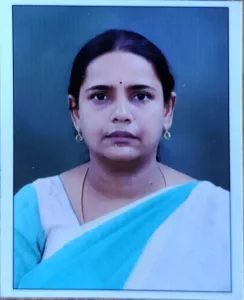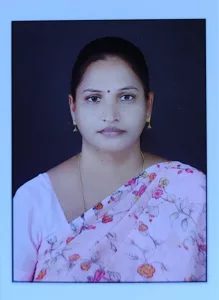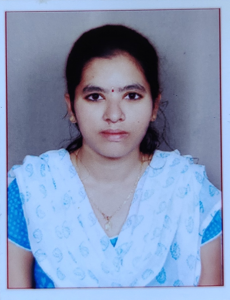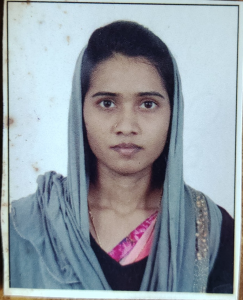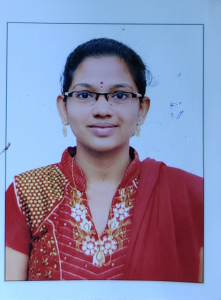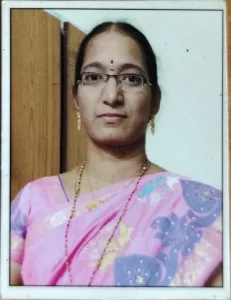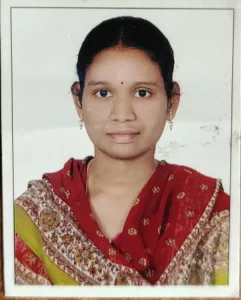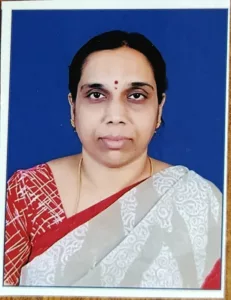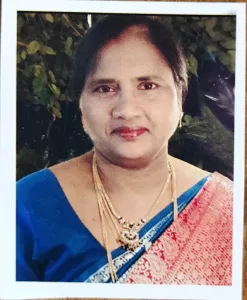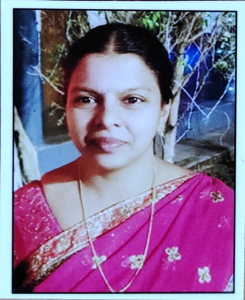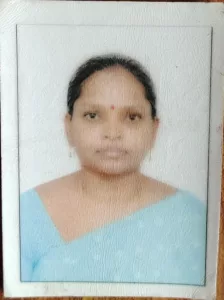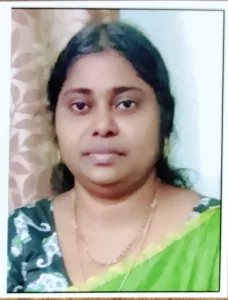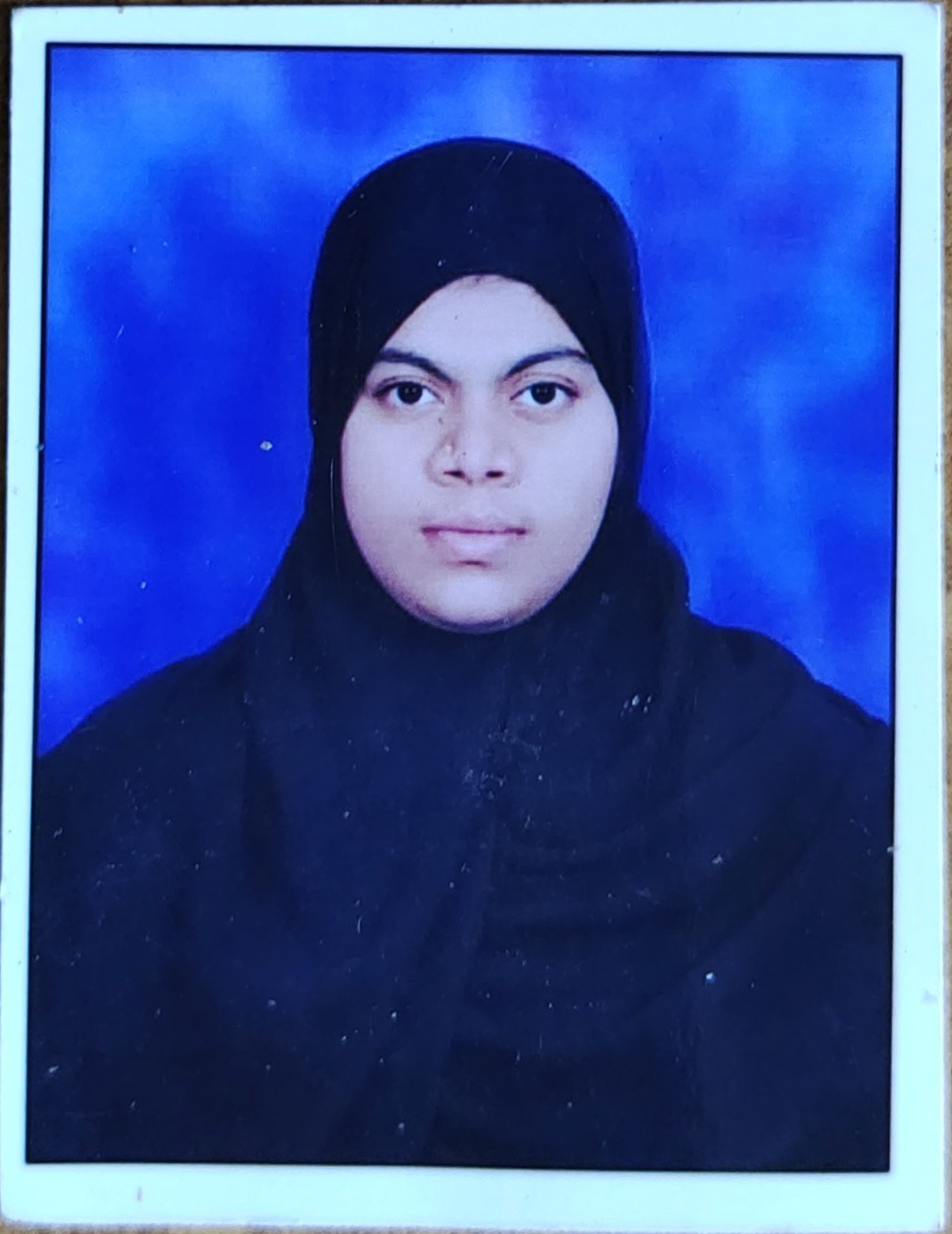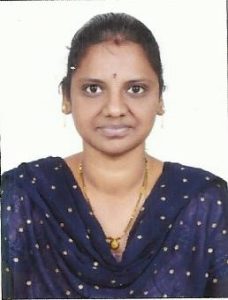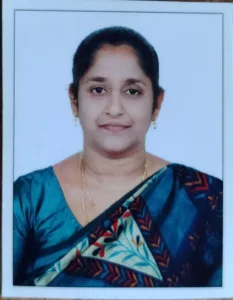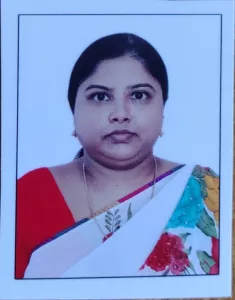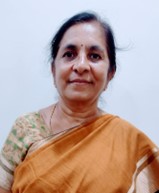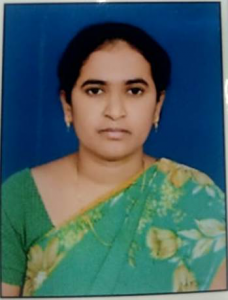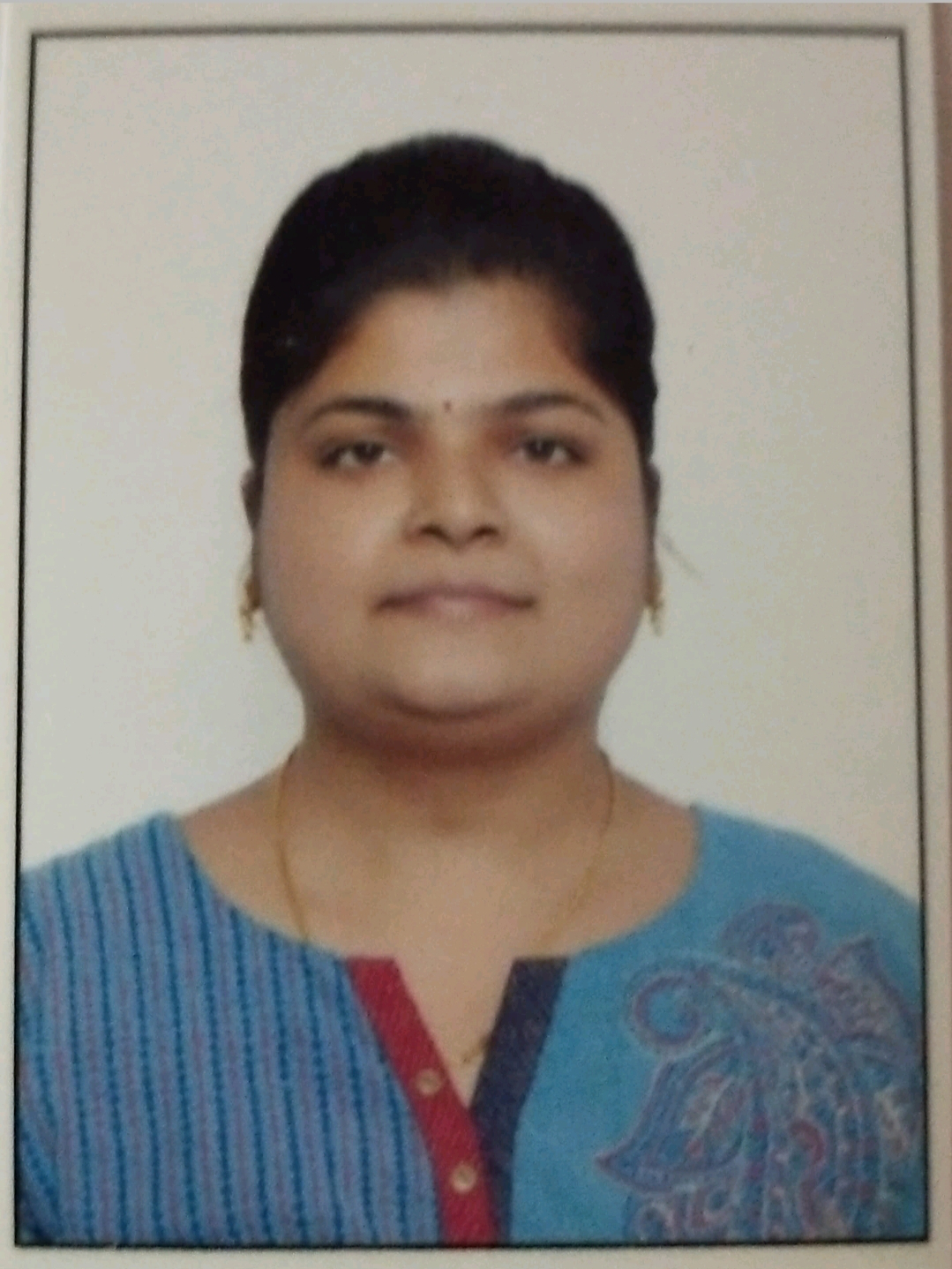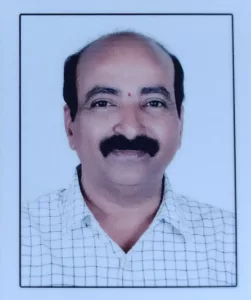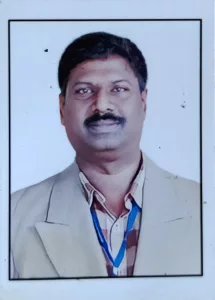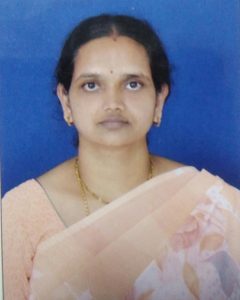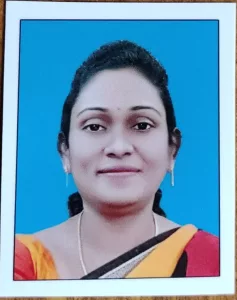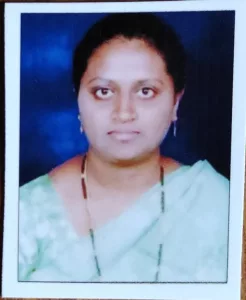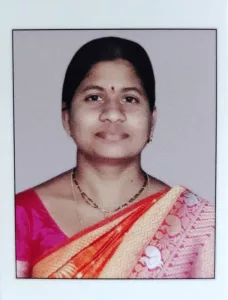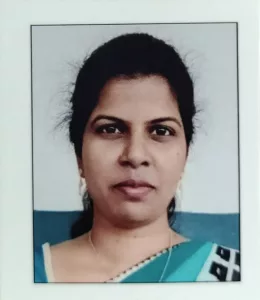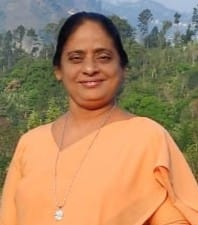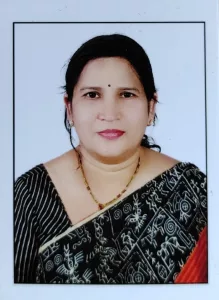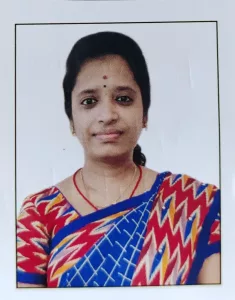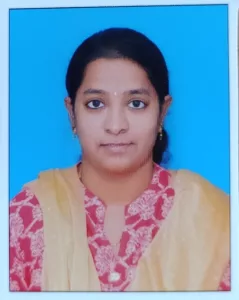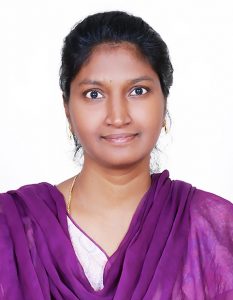MATHEMATICS
-Empowering Minds through Mathematics
An Overview of the Department
1. Introduction
The Department of Mathematics was established in 1962 with the goal of fostering analytical thinking, problem-solving skills, and mathematical reasoning among students. The department is committed to providing a strong foundation in mathematics, equipping students with the knowledge required for higher education, research, and industry, and holistic student development, preparing young women to meet the challenges of a dynamic world with confidence and an environment of academic excellence.
Our vision is to inspire and empower students through quality education in mathematics, while our mission focuses on academic excellence, skill development, and innovation in teaching mathematics.
Vision
To empower students with strong mathematical foundations, critical thinking, and problem-solving skills, fostering academic excellence, innovation, and ethical responsibility to contribute meaningfully to society and address global challenges.
Mission
M1: To provide quality education in mathematics through a dynamic and multidisciplinary
curriculum, promoting analytical thinking and research-oriented learning.
M2: To instill leadership and social responsibility by encouraging students to apply
mathematical knowledge to real-world problems and community service.
M3: To cultivate an inclusive and collaborative learning environment that nurtures innovation,
sustainability, and lifelong learning.
M4: To prepare students for different career opportunities and higher education through skill
enhancement and value-based education.
2. Historical Background
The Department introduced the BSc Mathematics programme with Physics and Chemistry in 1962. Initially, faculty from Chennai supported the department, and in 1968, Sr. Susan, a former correspondent and provincial, joined as one of the first faculty members. Over the years, dedicated lecturers such as Ms. B. Koteswaramma (HoD, 1971-1998), Ms. Durga Subbayamma (1971-1989), and Ms. Leela Ratnam (1976-1990) played a significant role in shaping the department. Since 1998, Ms. G. Usha Kumari has been leading the department, ensuring its continuous growth.
To cater to evolving student interests and industry needs, the department introduced new programmes such as BSc Mathematics with Physics and Computer Science in 1991, BSc Mathematics, Statistics, and Computer Science, BA Mathematics, Economics and Statistics and MSc Mathematics in 2003, and BSc Mathematics with Electronics and Computer Science in 2007. With the introduction of autonomy in 2003, the department also offered innovative two interdisciplinary elective courses: Quantitative Aptitude and Analytical Skills and launched certificate courses like Arithmetic; Sets, Relations & Functions on MOODLE.
3. Academic Programmes
The department offers undergraduate programmes in Mathematics with interdisciplinary combinations, ensuring students gain a comprehensive understanding of both theoretical and applied mathematics. The courses offered in Mathematics include:
Core Courses: Differential Equations, Analytical Solid Geometry, Group Theory, Numerical Methods, Laplace Transforms, Special Functions, Ring Theory, Introduction to Real Analysis, Integral Transforms, Linear Algebra, and Vector Calculus.
Elective Courses: Functions of Complex Variables, Advanced Numerical Methods, Number Theory, and Mathematical Statistics which are skill enhancement courses.
Interdisciplinary Electives: Analytical Skills, a Skill Enhancement Course and Basic Mathematics, a Multidisciplinary Course.
4. Research
The department has well qualified, experienced and dedicated faculty members engaged in teaching, research, administration and curriculum development and they contribute to:
- Research in Pure and Applied Mathematics.
- Publications in reputed journals and conference proceedings.
- Organizing and participating in national and international workshops, conferences, seminars, and FDPs.
- Curriculum development to align with industry and research trends.
5. Student Achievements & Activities
Students of the department have consistently excelled in academics, extracurricular activities, and competitive exams. Many students secure top ranks in university exams and pursue postgraduate studies at reputed institutions and quite a number of students secure jobs.
The department organizes quiz competitions, problem-solving sessions, student seminars and exhibitions of mathematical models, puzzles, and concepts. UG final year students undertake mini projects in applications of Mathematics for greater learning experience.
6. Facilities & Resources
The department provides a well-equipped learning environment with smart classrooms with ICT tools for interactive learning, access to online learning platforms and digital resources and a well-equipped library with reference books, textbooks, etc.
7. Industry & Community Engagement
The department actively collaborates with industries and research organizations through MoUs with institutions for research and skill development, guest lectures and workshops by industry experts, internship and training programmes in analytics and applications of mathematics, and community outreach programmes to promote mathematics awareness in schools.
8. Curriculum & Pedagogy
The department integrates innovative teaching methodologies to enhance student learning. Technology such as Google Classroom, Kahoot, Plickers, GeoGebra, Quizizz, Padlet, other Google Apps, and digital platforms are used extensively for interactive learning. The department promotes project-based learning such as assignments involving real-world applications of mathematics, and mini-projects. Hands-on activities, student seminars and peer teaching are integral parts of the assessment methodology. Equal weightage is given for all units of a course in exams to ensure holistic learning.
9. Future Plans
The department aims to
- Establish a Mathematics Lab with GeoGebra, Scilab, MATLAB, and Python-based tools for advanced problem-solving and research.
- Use AI tools like WolframAlpha, Symbolab, Desmos and interactive platforms like Courseera for offering personalized learning, problem-solving assistance, and interactive visualisations.
- Strengthen research collaborations with reputed institutions.
- Organize national and international conferences and workshops.
- Enhance ICT-enabled learning and digital resource accessibility.
FACULTY
Dr. Sr. Jasintha Quadras, Principal
Ms. G. Usha Kumari, HoD, Vice-Principal
Dr. Sr. Kulrekha Mudartha, CoE
Dr. C. Krishnaveni
Ms. S. Padmavathi
Dr. Sr. S. Asha, Vice-Principal
Sr. Balasree
STATISTICS
-Analyzing Today, Shaping Tomorrow
An Overview of the Department
- Introduction
The Department of Statistics was founded in 2003 to develop students’ analytical thinking, problem-solving abilities, and logical reasoning. It focuses on providing a solid foundation in Statistics, preparing students for higher education, research, and careers in industry. The department aims to foster the overall development of students, empowering young women to face the challenges of a rapidly changing world with confidence. It is committed to maintaining an environment of academic excellence.
Vision
To provide students with a strong foundation in Statistics, critical thinking, and
problem-solving skills, while encouraging academic excellence, innovation, and social
responsibility to address global challenges.
Mission
● To provide quality education in Statistics through a dynamic curriculum that fosters
analytical thinking, research, and real-world application.
● To encourage leadership, social responsibility, and the use of statistical knowledge in
addressing community and global challenges.
● To create a supportive learning environment that encourages innovation, sustainability,
and lifelong learning, while preparing students for careers and further education. - Historical Background
The department began in 2003, initially led by Mr. Venkateswara Rao, a retired Government Professor. Since 2005, Ms. D. Vedavathi Saraja is heading the department. To meet the evolving demands of students and the job market, the department introduced new programs such as BSc Mathematics, Statistics, and Computer Science in 2003, and a B.Sc. Honours (Statistics) starting in 2023. - Academic Programs
The department offers undergraduate programs that blend Statistics with other subjects,
ensuring students gain a well-rounded understanding of both theoretical and applied Statistics.
Key courses include:
Core Courses: Descriptive Statistics, Random Variables, Discrete and Continuous
Distributions, Inferential Statistics, Sampling Techniques, Design of Experiments, Applied
Statistics, Computational Statistics, and R Programming. Statistical Methods for Business
Analytics, Business Research Methodology, and Statistical Quality Control.
Elective Courses: Operations Research, Statistical Quality Control, Optimization
Techniques, and Applied Statistics.
Interdisciplinary Electives: Business Forecasting, Basic Statistics, and Basic Statistical
Tools. - Faculty Research
The department’s faculty is highly qualified and experienced, contributing to research in Pure Statistics, publishing in reputed journals, and participating in national and international conferences, workshops, and seminars. They also work on aligning the curriculum with industry trends and research - Student Achievements & Activities
Students consistently perform well academically and in extracurricular activities. Many achieve top ranks in university exams and go on to pursue postgraduate studies. The department organizes an annual inter-collegiate Statistics Meet, “SAANKHYA,” which includes quizzes, presentations, and a Spell Bee. Final-year students undertake mini projects that help apply their statistical knowledge to real-world problems. - Facilities & Resources
The department offers a well-equipped Statistics Laboratory with licensed SPSS software, smart classrooms with interactive ICT tools, access to online learning platforms, and a library with a range of reference materials. - Industry & Community Engagement
The department actively collaborates with industries and research organizations, offering
guest lectures, workshops, and internship opportunities focused on analytics and applications of Statistics. - Curriculum & Pedagogy
Innovative teaching methods are integrated into the curriculum, including the use of Google Classroom, Kahoot, Quizizz, SPSS, and other digital tools. Project-based learning, hands-on activities, student seminars, and remedial teaching are key elements of the assessment process, ensuring a well-rounded education. - Future Plans
● Strengthen research collaborations with leading institutions.
● Organize national and international conferences and workshops.
● Expand ICT-enabled learning and digital resource accessibility.
FACULTY
Dr. D. Vedavathi Saraja, HoD
M. Parveen Syed
Click here to view Courses Offered
PHYSICS
-Explore Physics to decode the nature and define the future
An Overview of the Department
1. Introduction
Established in 1962, the Physics Department is committed to academic excellence and scientific integrity. As a bridge between technology and society, it equips students with fundamental physics knowledge, preparing them for careers and leadership roles in a rapidly evolving world.
Beyond the classroom, the Department is dedicated to nurturing practical skills essential for future success. Our commitment extends to providing a wealth of experiential learning opportunities through structured internships that offer real-world exposure, targeted training programmes focused on specific techniques, valuable certificate courses that enhance specialized knowledge, enriching educational tours that broaden horizons, and engaging competitions that foster critical thinking and teamwork. These initiatives ensure our students graduate with a well-rounded skillset, making them highly competitive and readily employable.
Vision
To empower students with advanced scientific knowledge in Physics through quality education by cultivating analytical thinking, problem-solving skills, and a passion for innovation and discovery, fostering leadership and social responsibility in an environment of academic excellence and strong ethical values.
Mission
M1: To enable students master core Physics concepts, apply them across the discipline, and enhance critical thinking, creativity, and research skills for real-world problem-solving.
M2: To motivate students to pursue skill-based Physics courses, stay updated on emerging trends, and develop competence for independent research.
M3: To empower students for higher education and diverse careers by nurturing their problem-solving, communication, and critical thinking skills.
M4: To sensitize students to environmental, ethical, and contemporary issues, fostering a sense of responsibility toward society.
2. Historical Background
At its inception, the Department offered courses for Intermediate programmes with Mathematics, Physics, and Chemistry (M.P.C.) and Botany, Zoology, Physics, and Chemistry (Bi.P.C.) combinations. Additionally, it provided Physics courses for the undergraduate BSc (MPC) programme. To keep pace with evolving student interests and industry demands, the department expanded its offerings by introducing BSc Physics with Mathematics and Computer Science and BSc Physics with Mathematics and Electronics in 1991.
The department was shaped by the dedication of esteemed Heads, including Ms. K. Kanaka Durga (1962–1994), Ms. Ch. Giribala (1969–2002), Ms. M. Surya Kumari (1972–2007), Ms. P. Nagarani (1974-2007), Ms. D. Rohini (1974-2011), Sr. Aniamma Manuel (1983-1992), Ms. A. Kasturi (1981-2016), Ms. M. Triveni (1997-2017), and Dr. G. Little Flower (1990-2024) whose contributions laid a strong foundation for academic excellence. Ms. P. Padmalatha, who joined the department in 2002 as faculty, has been a pillar of support through her years of dedicated teaching and invaluable contributions. Now serving as Head of the Department since 2024, she continues to steer the department while guiding it toward sustained growth and excellence.
3. Academic Programmes
The department offers courses for Intermediate programmes: Mathematics, Physics, and Chemistry (M.P.C.) & Biology, Physics, and Chemistry (Bi.P.C.) and Undergraduate programmes in Physics with interdisciplinary combinations, ensuring students gain a comprehensive understanding of both theoretical and applied physics. The courses offered in Physics for Undergraduate Programmes include:
Core Courses: Mechanics & Properties of Matter, Optics, Heat & Thermodynamics, Electricity & Magnetism, Modern Physics, Electronic Devices & Circuits, Analog & Digital electronics, Introduction to Nuclear & Particle Physics, Applications of Electricity & Magnetism, Electronic Instrumentation.
Elective Courses: Optical Instruments & Optometry, Optical Imaging & Photography, Solar Energy & Applications, Low Temperature Physics & Refrigeration.
Interdisciplinary Electives: Principles of Physics Sciences. Basic Electronics as Multidisciplinary Course.
Certificate Courses: Solid State Lighting, Energy Conservation & Sustainability.
4. Faculty Members & Research
The department comprises highly qualified, experienced, and dedicated faculty members actively engaged in teaching, research, administration, and curriculum development. Their contributions include:
- Conducting research in Pure and Applied Physics.
- Publishing in reputed journals and conference proceedings.
- Organizing and participating in national and international workshops, conferences, seminars, study tours and exhibitions.
- Developing curricula that align with industry and emerging research trends.
- Offering relevant skills through updated certificate courses.
- Extending expert guidance to research scholars across diverse domains in physics.
- Engaging actively in both major and minor research projects.
5.Student Achievements & Activities
Students of the department consistently excel in academics, extracurricular activities, and competitive exams. Many secure top ranks in university examinations, pursue postgraduate studies at reputed institutions, and successfully enter the job market.
To enhance learning and skill development, the department also organizes student-centric events, educational tours, and intercollegiate competitions, attracting participation from intermediate, undergraduate, and postgraduate students across various colleges.
Facilitated by the Department, the student-driven ‘Inspire Club’ nurtures leadership, teamwork, and communication. Through student-led initiatives, the club offers platforms to showcase talents and enhance academic and social learning. Participation in these department-overseen activities broadens peer networks, enhances exposure, and enriches both academic and social learning experiences.
6. Facilities & Resources
The department provides access to a well-established advanced laboratory, providing hands-on experience with cutting-edge equipment and fostering deeper understanding of theoretical concepts through practical application. Furthermore, students benefit from a comprehensive learning environment, featuring smart classrooms equipped with ICT tools for interactive learning and access to online platforms and digital resources. Complementing this is a well-stocked library offering a wide range of reference books, textbooks, and academic materials.
7. Industry & Community Engagement
The department actively collaborates with industries and research organizations through MoUs for research and skill development. It organizes guest lectures and workshops by industry experts, facilitates internships and training programs in physics applications, and conducts community outreach programs to promote physics awareness in schools. It also provides students with opportunities for Community Service and Service-Learning. By actively participating in these projects, students not only contribute their time and effort to address real-world needs and support local organizations, but they also gain invaluable practical skills that extend far beyond the traditional classroom setting. These initiatives provide a platform for students to apply their knowledge and develop a sense of civic responsibility, ultimately enriching both their personal growth and the well-being of the community they serve.
8. Curriculum & Pedagogy
The department employs innovative teaching methodologies to enhance student learning in physics. Digital tools such as Google Classroom, Kahoot and simulation software are extensively used for interactive and experiential learning. Furthermore, students gain valuable technical skills by conducting experiments in virtual labs, complementing hands-on experiences and providing a dynamic and accessible learning environment.
Project-based learning is emphasized through real-world applications, mini-projects, and experimental investigations. Hands-on laboratory activities, student seminars, and peer teaching are integral to the learning process. To ensure comprehensive understanding, equal weightage is given to all course units in assessments.
9. Future Plans
The department envisions the following future developments:
- Elevating the Laboratory with advanced simulation tools, data analysis software, and experimental setups to support research and practical learning making it especially useful for postgraduate students.
- Strengthening research collaborations with reputed institutions to foster innovation and academic growth.
- Organizing national and international conferences, workshops, and seminars to facilitate knowledge exchange and professional networking.
- Expanding ICT-enabled learning by integrating advanced digital resources and interactive teaching methodologies.
FACULTY
Ms. P. Padmalatha, HoD
D.Jeevitha
Ms.Sara Kumari
H. L. Radha Kumari P
ELECTRONICS
Overview of the Department
The Department of Electronics was established in the year 1991. From the inception Mathematics, Physics and Electronics was offered as the combination. Since 2007-08 Mathematics and Electronics are offered in combination with Computer Science. This course was intended to produce students competent in theory, design and applications which has a good market value and considered as the latest trend of the job market.
Goal
Strive to mould young women competent with technical knowledge in Electronics and contribute to the nation’s development.
Objectives
- To impart theoretical knowledge along with skill orientation.
- To enhance understanding through practicals and hands on practice.
- To develop technical skills needed for higher progression.
- To promote scientific thinking.
- To become creative and innovative.
FACULTY
Ms. K. Hannah Anuhya
COMPUTER SCIENCE
- Educating with Emerging Technologies, Coding, and Creating for a Smart Tomorrow
An Overview of the Department
1. Introduction
Established in 1990, the Department of Computer Science aims to equip students with the knowledge and skills to become thoughtful and productive members of the computing profession and community.
The Department of Computer Science is dedicated to building a strong foundation in computing, algorithms, and emerging technologies. It prepares students for advanced studies, research, and careers in the tech industry by fostering expertise in Software Development, Data Science, Artificial Intelligence, and Cyber Security.
The vision of the department is to inspire and empower students through quality education in Computer Science, the mission being is centered on academic excellence, technological skill development, and innovation in computing education.
Vision
To cultivate a strong foundation in Computer Science, foster analytical thinking and problem-solving skills, and nurture innovation, academic excellence, ethical responsibility, and community outreach for empowering students to drive technological advancements and contribute to solving global challenges.
Mission
M1: To provide quality education in computer science through an interdisciplinary curriculum, fostering analytical thinking, problem-solving, research, and innovation in emerging technologies.
M2: To instil value-based, leadership and ethical responsibility by encouraging students to apply computational knowledge to real-world challenges, industry solutions, and societal impact.
M3: To equip students with technical proficiency for diverse careers and advanced studies in technology and foster an inclusive, collaborative learning environment that drives innovation, sustainability, and lifelong learning.
M4: To equip students in community-centered initiatives by leveraging technological knowledge and industry-relevant skills to address local needs, promote digital inclusion, and foster social responsibility.
2. Historical Background
Over the years, many dedicated lecturers played a significant role in shaping the department Ms. S. P. Glory (HoD, 2012-2020) carried forward the legacy of the department with the strong support of the members of the department. Joining the department in the year 2016, Ms. E. Grace Lydia has been consistently contributing to its department both as a faculty member and as the HoD since 2022 by adopting innovative teaching methods and motivating other members of the department.
To meet evolving student interests and industry demands, the department has been catering courses for the programs introduced which include BSc Mathematics with Physics and Computer Science (1991), BSc Mathematics, Statistics, and Computer Science (2003), as well as BSc Mathematics with Electronics and Computer Science (2007).
3. Academic Programmes
The department offers Computer Science as a Major as well as a Minor subject for undergraduate programs, providing students with a strong foundation in both theoretical concepts and practical applications of Computer Science.
The Major/Minor courses in Computer Science include:
Core Courses: Problem Solving using C, Digital Logic Design, Object Oriented Programming using Java, Data Structures using C, Computer Organization, Operating System, Database Management System, Object Oriented Software Engineering, Data Communications and Computer Networks, Web Interface Designing Technologies, Web Applications Development using PHP & MYSQL.
Elective Courses: Internet of Things, Foundations of Data Science, IoT Applications Development and Programming, Application development using Python.
Interdisciplinary Skill Electives: Digital Literacy, Data Analysis, Information & Communication Technology and Cyber Security.
The department also offers Computer Science courses for the BCom (Computer Applications) program which include:
Core Courses: Office Automation Tools, E Commerce & Web Designing and DBMS with Oracle.
Elective Courses: Business Analytics, Cyber Security, Mobile Application Development Using Android and Block Chain Technology.
The department also offers certificate courses such as VB.NET, Computer Animations, Programming in C, Basic Computer Skills and Web Page Designing focusing on hands-on to develop employability and entrepreneur skills among students.
4. Members & Research
The department has a team of highly qualified, experienced, and dedicated faculty members actively engaged in teaching, research, and curriculum development. Their contributions include:
● Publications in reputed journals and conference proceedings.
● Organizing and participating in national and international workshops, conferences, seminars.
● Curriculum development aligned with industry advancements and emerging research trends.
5. Student Achievements & Activities
Students of the department consistently excel in academics, extracurricular activities, and competitive exams. Many achieve top ranks in university exams, pursue postgraduate studies at prestigious institutions, and secure placements in leading software companies and tech industries.
6. Facilities & Resources
The department provides a technology-enhanced learning environment with smart classrooms, ICT tools, access to online resources, a well-stocked library including licensed software: Windows 8.1, Windows 10, Windows Server 2012, MS Office 2013, MS Office 2016, SPSS, Kaspersky Antivirus, Tally Gold 6, SQL Server 2017 and advanced computer labs equipped with the latest software, including AI/ML frameworks, cybersecurity tools, cloud computing platforms, and data analytics applications, ensuring interactive learning, hands-on training, and research opportunities in emerging technologies.
7. Industry & Community Engagement
The department actively collaborates with industries and research organizations through MoUs to enhance research and skill development. It conducts guest lectures, workshops by industry experts, internships, and training programs in Computing, Software Development, Data Science, and Cyber Security, along with community outreach initiatives to promote digital literacy and technological awareness.
8. Curriculum & Pedagogy
The department enhances learning through innovative teaching methods, utilizing Google Classroom and various coding platforms such as Tinkercad Circuits, CircuitVerse, Eclipse, Linux Terminal, Oracle Live SQL, StarUML, Lucidchart, XAMPP, Arduino IDE, WordPress, Tableau, Power BI, Android Studio, Jupyter Notebook, PyCharm etc. Emphasizing project-based learning, hands-on activities, and peer teaching, it ensures holistic assessment with equal weightage for all course units in examinations.
9. Future Plans
The department aims to
- Establish research collaborations with leading institutions to drive innovation and progress.
- Host national and international conferences and workshops for knowledge exchange.
- Improve ICT-enabled learning and expand access to digital resources.
- Set up a dedicated Artificial Intelligence Laboratory equipped with high-performance computing systems, GPUs, and AI development tools such as Python, TensorFlow, PyTorch, and MATLAB.
- Establish a Center of Excellence to foster interdisciplinary research, innovation, and collaboration in cutting-edge fields such as AI, Data Analytics, IoT, and Robotics.
- Encourage students to pursue globally recognized certifications (like AWS, Google Cloud, Oracle, and IBM AI) through collaboration with online platforms like NPTEL, Coursera, and EdX.
- Strengthen ties with leading IT industries to provide internships and industry-driven projects.
FACULTY
E. Grace Lydia, HoD
P. Vidyavathi
Sobia Afreen
Milton Ranasingh
Click here to view Courses Offered
CHEMISTRY
-Catalyzing Knowledge, Creating Impact
An Overview of the Department
1. Introduction
The Department of Chemistry, established in 1962, has been a cornerstone of scientific education and research, dedicated to fostering academic excellence and ethical values. Aligned with the college’s mission to empower young women through transformative education, the department offers a comprehensive curriculum that emphasizes both theoretical knowledge and practical skills.
Vision
To nurture a passion for chemistry through quality education that prepares students for global challenges, leadership and social responsibility in the scientific community.
Mission
M1: To provide a strong foundation in chemical sciences through innovative teaching methodologies and hands-on laboratory experiences.
M2: To encourage critical thinking, problem-solving skills and research-oriented learning to address complex scientific challenges.
M3: To promote interdisciplinary learning and research to stay abreast of emerging scientific trends.
M4: To instil ethical values and promote environmental awareness, sustainable practices in chemical sciences.
By adhering to vision and mission, the department aims to produce graduates who are not only proficient in their field but also dedicated to contribute positively to the society.
2. Historical Background
The department was established in 1962, with faculty initially conducting classes on a temporary basis. Mr Menon, Ms Chandra Kala and Ms Soudhamini along with three demonstrators Ms. Mary, Ms. Janaki, and Ms. Tulasi were constituting the department. The department saw its first permanent faculty appointment in 1969, with Ms. Vijayalakshmi joining the team. As student enrolment grew, additional appointments were made, reaching completion by 1981. Over the years, the department expanded to include nine faculty members and five support staff for laboratories.
The department has been shaped by the contributions of legendary faculty members, including Ms. Ch. Vjayalakshmi (HoD: 1969–2004), Ms. G. Subba Lakshmi (HoD: 2004–2007), Ms. S. Nirmala (HoD: 2007-2008), Ms. P.J. Mary, Ms. Leelamma George, Ms. T. Padma, Ms. P. Bharathi, Dr. Sr. Theresiamma, Ms. D.V. Tulasi, Ms. G. Gowri Bala Kumari (2008 – 2013), Mr. B.V Ramesh, Ms. M. Archana, Ms. M. Anusri, Ms, Sd Moulabi, Ms. E.Mohini Sireesha, Ms. P. Jhansi, Ms. Md Shaheema, Ms. Sk. Sabiha Begum, Ms. D. Santha Kumari (HoD: 2022-23), Ms. G. Hima Kumari. Their dedication laid a strong foundation for the department, fostering a legacy of academic excellence and innovation.
Joining the department in 2001, Dr. S. Vani Latha has been consistently contributing to the department both as faculty member and as the HoD since 2013 by adopting innovative teaching methods, integrating research-based pedagogical tools and actively motivating other members of the department.
A dedicated team of faculty members continues to uphold the department’s academic and research excellence.
3. Academic Programmes
The department provides undergraduate programs in Chemistry with interdisciplinary combinations, giving students a strong foundation in both theory and practical applications. The offered courses in Chemistry include:
Core Courses: General & Inorganic Chemistry, Inorganic Chemistry I, Fundamentals in Organic Chemistry, Organic Chemistry (Halogen & Oxygen Organic Compounds), Physical Chemistry I (Solutions & Electrochemistry), Inorganic & Physical Chemistry, Physical Chemistry II (States of Matter, Phase Rule & Surface Chemistry), Physical Chemistry II – Practical, General & Physical Chemistry, Nitrogen Containing Organic Compounds & Spectroscopy.
Elective Courses: Analytical Methods in Chemistry: Quantitative Analysis, Chromatography & Instrumental Methods of Analysis, Synthetic Organic Chemistry, Analysis of Organic Compounds.
Multi-Disciplinary Electives: Principles of Chemical Sciences and Introduction to Nanotechnology.
4. Faculty & Research
The department has well qualified faculty members dedicated to excellence in teaching and research, actively engaging in interdisciplinary studies and fostering a research-driven academic environment. They are involved in various scholarly activities like
- Research in Pure and Applied Chemistry
- Publish research papers in reputed chemistry journals and conferences.
- Take part in national and international workshops, seminars, conferences, and training programs.
- Updates the curriculum to include new industry developments and research trends.
5. Student Achievements & Activities
Students of the department have a strong academic record and actively participate in extracurricular activities and competitive exams. Many achieve top ranks in university exams and continue their studies at prestigious institutions. Some pursue research, while others build careers in industries such as Polymers, Pharmaceuticals, Chemicals, and Education. A few also opt for master’s programs abroad in countries like the USA, UK, and across Europe.
The department actively engages students through various academic and outreach programs. The department organizes Alchemy Fair, a chemistry exhibition that blends science with compassion where the entry fee is a bowl of rice, which is donated to orphanages, encouraging students to contribute to both knowledge sharing and community welfare.
Through the Lab to Schools initiative, students demonstrate experiments to school children, sparking curiosity in science. The department observes Pollution Control Day and World Water Day by conducting intra-college competitions on relevant themes and various other activities in schools. Workshops, career orientation programs, and subject-related guest lectures enhance active learning. Students are also encouraged to participate in inter-college competitions, paper presentations, seminars, and conferences to develop their academic and research skills.
6. Facilities & Resources
The department possess state-of-the-art laboratories with basic research tools and equipment, ensuring hands-on experience in experimental chemistry. It provides a well-equipped learning environment with smart classrooms featuring ICT tools for interactive learning. Students have access to online learning platforms, digital resources, and a well-stocked library with text books, reference books, journals, magazines etc.
7. Industry & Community Engagement
The department collaborates with laboratories, industries, and research organizations through MoUs for skill development and research. It organizes guest lectures and workshops by industry experts, offers internships and training programs in chemical analysis and applications. students engage in community service projects applying their knowledge in chemistry to address environmental and societal challenges, such as water conservation and pollution control.
8. Curriculum & Pedagogy
The department adopts a dynamic and student-centred approach to teaching, combining classroom activities with experiential learning to enhance conceptual understanding. The heuristic method and project-based learning encourage students to explore and analyze concepts independently. Innovative practices like the Question Paper Setting Activity help students understand exam patterns, while activities such as Flash Recap and Recall Tests reinforce learning through quick reviews. Collaborative learning through peer teaching and the pair-share method is encouraged allowing students to explain concepts to each other, enhance understanding, and develop communication skills. Students engage in seminars discussing nanomaterial fabrication techniques from research papers, promoting critical thinking. Hands-on sessions with teaching aids, the Shape It Out activity, and YouTube videos further enrich the learning experience, ensuring a holistic and interactive education.
9. Future Plans
Bridging Chemistry and Careers – Enhancing industry-relevant curriculum, promoting career opportunities and conducting outreach programs to inspire interest in the subject.
Introduction of New Courses – Launching certificate and skill-based programs in emerging fields like Green Chemistry, Pharmaceutical Chemistry, and Material Science.
Research & Innovation – Establishing research collaborations with industries and institutions, promoting student research projects, and enhancing laboratory facilities for advanced studies.
Industry Connect & Internships – Strengthening MoUs with chemical industries, pharma companies, and research labs to provide hands-on training and internship opportunities.
Technology-Integrated Learning – Expanding the use of ICT tools, virtual labs, and AI-based simulations for interactive learning.
Sustainability & Community Engagement – Strengthening outreach programs on water conservation, pollution control, and green chemistry awareness in schools and communities.
Student Development Initiatives – Organizing national and international conferences and seminars, career guidance programs, and competitions to encourage student participation in research and higher education.
Entrepreneurship & Skill Development – Introducing workshops on chemical product formulation, analytical techniques, and entrepreneurship in chemistry-related fields.
FACULTY
Dr. S. Vanilatha, HoD
Ms. D. Santha Kumari
Dr. M. Sridevi
Dr. U. Divyasree
Dr. K. Sai Bhavani
Click here to view Courses Offered
BIOTECHNOLOGY
- Reinventing Biology by Bridging Science and Technology for a Resilient Society
An Overview of the Department
1. Introduction
Established in 2008, the Department of Biotechnology has steadily emerged as a centre of academic and research excellence. It offers a dynamic learning environment that blends foundational knowledge with hands-on experience, preparing students to thrive in the rapidly evolving biotechnology sector. With a future-forward curriculum and a strong research focus, the department fosters innovation, scientific inquiry, and industry readiness. Continuous curriculum updates ensure alignment with global scientific advancements, enabling students to perform well in competitive exams and pursue higher studies or professional careers.
The Department remains committed to nurturing the next generation of biotechnologists equipped not just with academic knowledge but with the skills, vision, and mind-set to lead innovation and change.
Vision
Cultivating in students a deep understanding of biotechnology, critical inquiry, and practical skills, alongside a commitment to innovation, academic integrity, and social responsibility to tackle global challenges across diverse sectors.
Mission
M1: To provide an interdisciplinary biotechnology education integrating theory with hands-on skills
M2: To foster innovation and inquiry through a strong research-driven approach.
M3: To uphold academic integrity, instill ethical values and dedication for scientific growth.
M4: To leverage biotechnology for impactful solutions to address health and environmental challenges.
This forward-thinking approach ensures that students are equipped for innovation-driven careers and empowered to contribute meaningfully to science, industry, and society.
2. Historical Background
Since its inception in 2008, the department caters to the growing interest in life sciences and biotechnology. In its early years, faculty from allied sciences supported the department, including Ms. M.J.Lasina, who significantly contributed to its academic growth during her tenure from 2015 to 2020. Over time, dedicated faculties played a key role in its development. The department has been led by Dr. P.V. Rekha Devi since 2025, bringing rich experience in both teaching and research. Her leadership continues to drive academic excellence and fosters a strong research culture.
3. Academic Programs
The department offers undergraduate programs with interdisciplinary combinations. The curriculum includes subjects such as genetics, microbiology, molecular biology, and bioinformatics, supported by lab-based learning. It emphasizes case studies, projects, digital tools, and continuous assessments. The courses offered include:
Core Courses: Introduction to Classical Biology, Introduction to Applied Biology, Biomolecules and Analytical Techniques, Microbiology and Cell Biology, Plant and Animal Biotechnology, Molecular Biology, Genetic Engineering, Metabolism, Immunology, Bioinformatics and Biostatistics, Medical Biotechnology, Industrial Biotechnology, Food and Nutritional Biotechnology.
Elective Courses: Gene Biotechnology, Genomics & Proteomics, Nanotechnology & Pharmaceutical Biotechnology, Applications of Biotechnology.
4. Faculty and Research
Faculty members are actively involved in diverse research domains and consistently contribute to scientific advancement through publications in peer reviewed national and international journals leading to the filing and granting of patents, emphasizing the department’s focus on translational research. In addition to academic pursuits, faculty also offer consultancy services in specialized areas of biotechnology like occupational exposure assessment studies fostering industry linkages and practical impact. Collaborations with academic and industry partners further enhance research quality, while enriching student learning through exposure to current technologies and real-world applications.
5. Student Achievements & Activities
The department takes pride in its dedicated faculty, who serve not only as educators but also as mentors. Their diverse expertise strengthens the academic ecosystem and provides students with personalized guidance throughout their academic journey.
Holistic student development is encouraged through:
- Participation in student clubs and extracurricular activities
- Community outreach programs
- Leadership and skill-building initiatives
These activities help foster a socially responsible mind-set, leadership qualities, and essential soft skills.
6. Facilities & Resources
The department boasts state-of-the-art laboratories equipped with advanced instruments essential for cutting-edge research and practical training in biotechnology such as PCR, Tissue culture lab, UV-Vis Spectrophotometer and others. Alongside modern lab facilities, students have access to smart classrooms integrated with ICT tools for enhanced learning, as well as a comprehensive library stocked with specialized textbooks, reference books, and scientific journals to support their academic and research needs.
7. Industry & Community Engagement
Strong ties with industry enable students to gain real-world experience through industrial visits, internships, and live projects. Regular guest lectures by industry experts and alumni provide insights into emerging biotech trends and career paths.
The department’s strong academic-industry interface ensures students graduate with the technical competence, professional attitude, and adaptability required for roles in research, industry, or higher education.
8. Curriculum & Pedagogy
The department prepares students for advanced studies and global research opportunities. It provides
- hands-on training in core biotechnology techniques and tools;
- fosters scientific thinking, creativity, and problem-solving;
- promotes socially impactful applications of biotechnology;
- instil values of integrity, professionalism, and lifelong learning
The department emphasizes experiential and research-based learning. Students are actively encouraged to engage in internships and collaborative research projects at leading institutions. Ongoing faculty-led research, regular seminars, and participation in conferences enhance their exposure to current developments in the field. Research is a core pillar, with thrust areas including:
- Molecular Biology & Genetic Engineering
- Plant & Environmental Biotechnology
- Computational Biology & Bioinformatics
- Nanobiotechnology
- Agricultural & Industrial Biotechnology
A range of learner-centered pedagogical tools including case studies, project-based learning, and digital platforms promote critical thinking and practical skills. Continuous assessment through assignments, presentations, and laboratory tasks ensure steady academic growth. Workshops, expert talks, and skill development programs further enrich the learning experience and boost industry preparedness.
9. Future Plans
Looking ahead, the department aims to expand its academic and research capabilities through:
- Introduction of new electives and interdisciplinary programs
- Establishment of specialized research labs for Synthetic Biology
- Foster International collaborations and exchange programs
- Support entrepreneurship through incubation and mentorship
This forward-thinking approach ensures that students are equipped for innovation-driven careers and empowered to contribute meaningfully to science, industry, and society.
FACULTY
Dr. P. V. Rekha Devi
Dr. G. Swapna
Dr. K. Sri Lakshmi Ramya Krishna
Dr. Mohammad. Momina Shanwaz
Dr. P.V.Rekha Devi
FOOD SCIENCE & TECHNOLOGY
-From Farm to Fork– We Study it all to Create a Healthier Future
An Overview of the Department
1. Introduction
The Department of Food Science and Technology, established in 2017, is committed to advancing knowledge and innovation in food processing, safety, and sustainability. It offers a comprehensive blend of theoretical and practical training, equipping students with the expertise to transform raw agricultural products into high-quality processed foods. With a strong focus on research, industry collaboration, and societal impact, the department prepares students for successful careers in the food sector while promoting food safety, quality, and sustainable practices.
Vision:
To empower students with advanced knowledge and hands-on expertise in food science, enrich their learning through innovation and industry-driven training, excel in promoting food safety, quality, and sustainability, and transform by cultivating leadership, ethical responsibility, and positive societal impact.
Missions:
M1: To provide a strong foundation in food science and technology through innovative teaching methodologies, practical training, and state-of-the-art laboratory experiences.
M2: To foster critical thinking, research aptitude, and problem-solving skills to address challenges in food safety, quality control, and sustainable food production.
M3: To promote interdisciplinary learning and industry collaboration, enabling students to stay updated with emerging trends in food processing, biotechnology, and nutrition.
M4: To instil ethical values, leadership qualities, and a commitment to environmental stewardship and social responsibility in the field of Food Science and Technology.
2. Historical Background:
The Department has been established with a vision to provide quality education and hands-on training in food science, processing, and safety. During its formative years (2017–2019), the department was led by Ms. T. Rajeswari and Ms. J. Tulasi, who played a crucial role in laying its foundation. Joining the Department in 2023, Ms. P. Bhavani has been steering the department toward new heights, focusing on innovation, industry engagement, and academic excellence as HoD her leadership continues to drive the department’s growth, ensuring it remains at the forefront of Food Science education and research.
3. Academic Programmes
The Department offers a diverse range of courses designed to provide students with a comprehensive understanding of both theoretical and applied aspects of food science, nutrition, and technology. The curriculum blends essential food science subjects with interdisciplinary knowledge to ensure students are well-equipped to meet the challenges of the rapidly evolving food industry. The Department offers:
Core Courses: Introduction to Food Science & Nutrition, Health, Hygiene & Wellness, Food Biochemistry, Human Nutrition, and Food Microbiology.
Elective Courses: Food Safety & Quality Control, Baking Science & Technology, Technology of Meat, Fish Poultry & their Products, Technology Fruits, Vegetable & Plantation Crops and Fermentation Technology.
4. Members & Research:
The department is supported by a team of highly qualified, experienced, and dedicated faculty members who play a crucial role in teaching, research, and curriculum development. Their contributions include:
- Conducting research in food science, food technology & nutrition.
- Organizing and participating in national and international workshops, conferences, seminars, fostering collaboration and continuous professional development.
- Engaging in curriculum development to ensure that courses are aligned with the latest industry trends, technological advancements, and research developments, providing students with a well-rounded, current, and practical education.
5. Student Achievements & Activities:
Students of the department have consistently excelled in academics, extracurricular activities, and competitive exams. Many students secure top ranks in university exams and pursue postgraduate studies at reputed institutions, while quite a number of students secure jobs in the food industry.
The department organizes quiz competitions, problem-solving sessions, student seminars, and exhibitions of food models, recipes, and culinary concepts. These events provide a platform for students to engage with the field in a creative and practical way.
Final-year undergraduate students undertake mini-projects that explore the applications of food science, offering a hands-on learning experience and deepening their understanding of the diverse aspects of the food industry.
6. Facilities & Resources
The food department offers a range of essential facilities and resources to enhance student learning, research, and practical experience. It features specialized labs, such as food science, sensory evaluation, nutrition, and food technology labs, where students can engage in hands-on experiments, food analysis, and product development. The department also provides access to a well-stocked library with books allowing students to explore with the latest developments in food processing. To further support practical learning, the department provides food processing equipment, giving students valuable hands-on experience in food production, quality control, and packaging design. These resources ensure students are well-equipped to thrive in both academic and real-world food industry settings.
7. Industry & Community Engagement
The department actively fosters industry and community engagement to provide students with exposure to the latest trends and practices in the field. to facilitate various collaborative activities, including workshops, training programs, and seminars, helping both students and faculty stay updated with industry advancements. The department organizes field trips, industry visits, and study tours to offer students practical insights into food production, processing, and quality control. Notable industrial visits include trips to Sangam Dairy, where students observed dairy processing and product development, and KCP Sugar Factory, where they learned about sugar production and manufacturing processes, etc. Additionally, the department is deeply committed to community service, demonstrated by a project in Nidamanuru, where students educated the local community on nutrition. Through this initiative, students taught essential nutritional concepts to schoolchildren and community members, promoting better health and dietary practices.
8. Curriculum & Pedagogy
The department employs innovative teaching methodologies to enhance student learning and foster a deeper understanding of the subject. Technology plays a pivotal role, with tools like Google Classroom and other Google Apps being extensively used to promote interactive and engaging learning experiences. The department prioritizes project-based learning, assigning real-world tasks that bridge theory with practice and also provide students with opportunities to apply their knowledge in practical settings. Hands-on activities, student-led seminars, and peer teaching are integral components of the assessment methodology, enabling students to demonstrate understanding and engage collaboratively.
9. Future plans:
⇒Skill Development & Certification
- Strengthen collaborations with food industries to offer industry-recognized certifications.
- Strengthen hands-on training, internships, and job placements to enhance career opportunities.
- Organize workshops and training programs on the latest food processing technologies and safety standards.
⇒Industry-Aligned Curriculum
- Design a curriculum that integrates practical, real-world education aligned with food industry needs.
- Introduce emerging topics such as plant-based foods, advanced food packaging, and food safety regulations.
⇒Research & Innovation
- Focus on cutting-edge research in new food technologies, nutritional science, and food safety.
- Promote innovations in sustainable food production and processing techniques.
- Develop healthier, functional, and alternative food products to address consumer health and wellness trends.
⇒Sustainability & Social Impact
- Advocate sustainable farming practices and ethical food sourcing.
- Implement strategies to reduce food waste and promote food security.
- Support the circular economy through recyclable packaging and innovative food waste solutions.
⇒Entrepreneurship & Technology Integration
- Encourage food start-ups that focus on innovation, sustainability, and consumer health.
- Integrate emerging technologies such as AI, IoT, and block chain for food tracking, safety, and quality assurance.
- Explore advancements in alternative proteins and smart food systems to meet future dietary and environmental challenges.
FACULTY
P. Bhavani, HoD
Ch. Sai Kiran
Click here to view Courses Offered
MICROBIOLOGY
-Unlocking the Microbial World for Future Innovations
An Overview of the Department
1. Introduction
The Department of Microbiology was established in 2018 with the primary goal of fostering a deep understanding of the microbial world and its significant impact on human health, the environment and industries. The department is dedicated to providing a comprehensive education in microbiology, encouraging critical thinking, scientific inquiry and hands-on research skills. With a commitment to nurturing future leaders in microbiological sciences, the department plays an essential role in shaping young minds to tackle global health challenges, contribute to environmental sustainability and innovate in the biotechnology and pharmaceutical industries. Our environment is one of scientific excellence, research and holistic development of students, preparing them to confidently meet the demands of the ever-evolving scientific world. We aim to transform students into leaders of academic excellence, research-driven inquiry, and ethical responsibility in addressing global health challenges and microbial threats.
Vision
To empower young women with in-depth knowledge and understanding of microbiology, enriching their critical thinking and practical skills, enabling them to excel in scientific innovation, healthcare advancement and environmental protection.
Mission
The mission of the Department is to empower young women through transformative education, fostering intellectual competence, social responsibility, and leadership in the field of microbiology, rooted in sound academic and ethical values.
M1: To provide comprehensive education in microbiology through a dynamic and interdisciplinary curriculum, fostering critical thinking, scientific inquiry, and research-driven learning.
M2: To cultivate a collaborative and inclusive learning environment that promotes innovation, sustainability, and continuous professional development in microbiology.
M3: To prepare students for diverse career paths and advanced academic opportunities by enhancing practical skills, research competencies, and ethical responsibility in microbiology.
M4: To develop leadership skills and social responsibility by encouraging the application of microbiological knowledge to solve real-world health, environmental, and industrial challenges.
2. Historical Background
The Department was established with a vision to impart quality education and promote research in the fascinating world of microorganisms. With the dedication, academic expertise, and leadership of Dr. I. Mani Deepa, the department began its journey, focusing on both theoretical and practical aspects of microbiology to inspire budding scientists. The department was further led by Dr. D. Silpa, who brought in a new wave of energy and development. Under her guidance, the department expanded its academic programs, introduced innovative teaching methods, and encouraged student participation in research and scientific exploration.Later, Ms. Syed Sufiya Sultana joined the department, continuing the legacy with a commitment to academic excellence and holistic student development. Her involvement further enriched the learning environment, and the department continued to grow in strength and reputation.
3. Academic Programmes
The Department of Microbiology offers an undergraduate programs designed to provide students with a strong foundation in both theoretical concepts and practical applications of microbiology across diverse fields. Through a comprehensive curriculum and hands-on laboratory experience, students will develop the skills necessary to excel in scientific research, healthcare, industry, and environmental sectors. The courses offered include:
Core Courses:
Introduction to Microbiology, Bacteriology & Virology, Eukaryotic Microorganisms, Biomolecules & Enzymology, Microbial & Analytical Techniques, Cell Biology & Genetics, Molecular Biology & Microbial Genetics, Microbial Physiology & Metabolism, rDNA technology, Biostatistics & Bioinformatics, Immunology & Medical Microbiology, and Applied Microbiology.
Elective Courses:
Food & Dairy Microbiology, Diagnostic Microbiology, Industrial Microbiology, and Pharmaceutical Microbiology
Certificate Courses:
Epidemiology of Infectious Diseases, and Medical Coding
Service-Learning Certificate Course:
Contagious Diseases
4. Members and Research
The Department of Microbiology is supported by a team of well-qualified and dedicated faculty members committed to excellence in teaching, research, and curriculum development. Their major contributions include:
- Conducting research in both basic and applied areas of microbiology
- Publishing in nationally and internationally reputed, indexed journals
- Organizing and actively participating in national and international conferences and workshops
- Collaborating with industry partners to bridge the gap between academia and industry
5. Student Achievements & Activities
Students in the Microbiology department consistently demonstrate excellence in both academics and extracurricular pursuits. Many students secure top ranks in university exams and continue their studies at prestigious institutions for postgraduate degrees. Additionally, a significant number of students successfully secure employment in renowned organizations and research institutes.
The department regularly organizes quiz competitions, interactive problem-solving sessions, student seminars and exhibitions focusing on microbiological concepts, techniques and discoveries. UG final-year students undertake mini-projects and research projects on various microbiological applications, allowing for a hands-on learning experience that enhances their understanding of the subject and its real-world applications.
6. Facilities & Resources
The Microbiology department offers a state-of-the-art learning environment with modern smart classrooms equipped with ICT tools to facilitate interactive learning. Students have access to a wide range of online learning platforms and digital resources, ensuring they can enhance their knowledge beyond traditional teaching methods.
The department also boasts a well-equipped library stocked with essential reference books, textbooks, and other academic materials relevant to microbiology. In addition to these resources, the department features specialized laboratories for practical experiments, equipped with advanced instruments and technology to support hands-on learning and research in microbiology.
7. Industry & Community Engagement
The department actively collaborates with industries, research organizations and healthcare institutions through Memorandums of Understanding (MoUs) to foster research, skill development and innovation. The department organizes guest lectures and workshops led by industry experts, offering students valuable insights into the latest trends and advancements in microbiology.
Additionally, the department provides internship and training opportunities for students in areas such as microbiological research, diagnostics and biotechnology applications. These initiatives equip students with practical experience and enhance their employability. The department also engages in community outreach programs, promoting awareness of microbiology and its impact on health, sanitation and environmental sustainability, particularly in schools and local communities.
8. Curriculum & Pedagogy
The department integrates innovative teaching methodologies to enhance student learning in Microbiology. Advanced technological tools such as Google Classroom, Virtual labs, Google forms and digital platforms are used extensively to create an interactive and engaging learning environment. The department promotes project-based learning, with assignments that involve real-world applications of microbiological concepts, such as laboratory techniques, environmental microbiology and public health. Mini-projects, hands-on activities, student seminars and peer teaching are integral components of the assessment methodology. Equal emphasis is placed on all units of a course during exams to ensure a holistic understanding of microbiological sciences.
9.Future plans
The department plans to:
- Equip the Microbiology laboratory with advanced analytic instruments
- Involve the students in basic research projects and improve their analytical skills
- Strengthen research collaborations with leading research institutions.
- Organize National and International conferences/workshops to promote knowledge exchange.
- Enhance the learning experience through digital resources and advanced pedagogical approaches.
FACULTY
Dr. I. Mani Deepa
Blogspot
Click here to view Courses Offered
BIOCHEMISTRY
-Exploring Inspiring Innovation through Biochemistry.
An Overview of the Department
1. Introduction
The Department of Biochemistry was established in 2020 with the aim of cultivating scientific curiosity, critical thinking, and research aptitude among students. The department is dedicated to providing a strong foundation in biochemistry, equipping students with the knowledge and skills essential for higher education, research, and industry. Committed to holistic student development, it prepares young women to navigate the evolving scientific landscape with confidence, fostering an environment of academic excellence.
Vision
To nurture students with a profound understanding of biochemistry, instilling analytical thinking, research aptitude, ethical awareness, and critical thinking to address global challenges in healthcare, research, and environmental sustainability.
Mission
Academic Excellence & Research Orientation: To provide quality education in biochemistry through a dynamic and interdisciplinary curriculum, promoting analytical thinking, scientific inquiry, and research-driven learning.
Innovation & Lifelong Learning: To engage in high-impact research, contributing to the global scientific community through publications, collaborations, and participation in national and international conferences.
Ethical & Social Responsibility: To instill moral integrity and ethical awareness, encouraging students to apply biochemical knowledge responsibly for the betterment of society.
Leadership & Community Engagement: To empower women with a strong sense of social responsibility, enabling them to apply their biochemical expertise to solve critical challenges in healthcare, industry, and environmental sustainability.
2. Historical Background
The Department of Biochemistry was established with the vision of integrating biochemical sciences with food science, microbiology, and technology-driven innovations.
The pioneering faculty team included Dr. Alice Jayapradha, whose unwavering dedication and relentless efforts played a pivotal role in establishing the course.
In 2023, the addition of Mr. K. Krishna Manohar as Head of the Department significantly contributed to establishing the department’s distinct identity.
3. Academic Programmes
The Department of Biochemistry at Maris Stella College offers an Undergraduate Programme designed to provide students with a strong foundation in biochemical sciences, equipping them with theoretical knowledge and practical expertise.
Core Courses: Biomolecules, Cell Biology, Analytical Techniques, Basic Microbiology, General Physiology, Genetics, Bioenergetics and Metabolism of Carbohydrates & Lipids, Clinical Biochemistry, Immunology Nutritional Biochemistry and Enzymology.
Elective Courses: Molecular Biology, Genomics and Proteomics, Metabolism of Nitrogen Compounds, Nanotechnology & Pharmaceuticals.
4. Research
The department has well qualified, experienced and dedicated faculty members engaged in teaching, research, administration and curriculum development and they contribute to:
- The department boasts a highly qualified faculty with expertise in Biomolecular Sciences, Enzymology, Metabolic biochemistry, Clinical and Molecular diagnostics.
- Publications in reputed journals and conference proceedings.
- Organizing and participating in national and international workshops, conferences, seminars and FDPs.
- Curriculum development to align with industry and research trends.
5. Student Achievements & Activities
Students of the department have consistently demonstrated excellence in academics, extracurricular activities, intercollegiate competitions, and competitive exams. Many achieve top ranks in university examinations, pursue postgraduate studies at prestigious institutions like Central universities and foreign universities, and secured promising career opportunities. Students actively participate in national and international conferences.
The department organizes student seminars quiz competitions, and Science Expos to promote scientific curiosity. Students undertake mini projects in applications of biochemistry for greater learning experience. In addition, the department offers in-house internships for enthusiastic UG students to foster research aptitude and technical proficiency in core areas of biochemistry.
6. Facilities & Resources
- Well-equipped Biochemistry laboratory with advanced analytical instruments.
- Departmental library with extensive Biochemistry reference books and e-resources.
- Software tools for Molecular Modeling and Bioinformatics applications.
- Smart classrooms with ICT tools for interactive learning, access to online learning platforms.
7. Industry & Community Engagement
The department places strong emphasis on fostering meaningful connections with both industry and the community. These engagements are designed to provide students with practical exposure, enhance their technical skills, and promote social responsibility through health awareness and education. This includes:
- Workshops and Training Programmes in Biochemical techniques and industrial applications.
- Field Trips & Industrial Visits to Biochemical, Food, Pharmaceutical, and Biofuel industries.
- Internships and Training Programmes in Clinical Biochemistry and Immunodiagnostics in hospitals and research labs.
- The department actively engages in community outreach initiatives to raise awareness about various health concerns among community.
- Special programs focus on educating young girls about the significance of folic acid and the role of hemoglobin in maintaining good health and preventing anemia.
8. Curriculum & Pedagogy
The department prioritizes a dynamic and student-centered approach to education, integrating cutting-edge technology and innovative teaching methods to foster deep understanding and critical thinking in biochemistry. The curriculum is designed to blend theoretical knowledge with practical application. The curriculum features:
- Integration of technology such as Google Classroom, Virtual Labs & Simulations, interactive websites & apps, and digital platforms for enhanced, interactive learning.
- Experiential learning methodologies including case studies, research projects, hands-on laboratory sessions, and industrial visits, to provide real-world exposure.
- Skill-based and value-based courses focused on Clinical Biochemistry and Enzymology, offering students specialized knowledge in key areas of biochemistry.
- Encouragement of project-based learning through assignments that apply biochemistry concepts to real-world scenarios, including mini-projects. The assessment approach incorporates hands-on activities, student seminars, and peer teaching as essential components of learning.
- Balanced evaluation with equal weightage given to all course units in exams, ensuring a comprehensive understanding of biochemistry.
Commitment to Excellence
The Department of Biochemistry is dedicated to fostering a culture of academic rigor, research excellence, and holistic student development. The key pillars of this commitment include:
- Comprehensive Curriculum: Well-structured academic framework that integrates Biochemical theory with practical applications, ensuring a strong scientific foundation.
- Distinguished Faculty: Team of experienced academicians and researchers who have made significant contributions to international research, peer-reviewed publications, and prestigious academic conferences.
- Research-Driven Learning: Stimulating academic environment that encourages students to engage in research, explore emerging trends, and develop hands-on expertise in Biochemical instrumentation.
- Interdisciplinary Exposure: Collaborative learning opportunities with allied disciplines such as Food Science & Technology and Microbiology, broadening the scope of Biochemical applications.
- Skill Development & Innovation: A strong emphasis on practical skill acquisition, independent research exploration, and scientific problem-solving to prepare students for evolving challenges in biochemistry and related fields.
With a steadfast commitment to nurturing the next generation of biochemists, the department continually strives to enhance student learning experiences, research contributions, and industry relevance, positioning itself as a distinguished center for biochemical education and innovation.
9. Future Plans
- Industry-Academia collaborations for skill-based training and employability enhancement.
- Expansion of Laboratory Infrastructure with cutting-edge biochemical instrumentation.
- Initiation and development of grant-supported research activities in Medical Biochemistry, Biotechnology, and Environmental biochemistry.
- Development of Online Certificate Courses in 4-quadrants for Molecular Diagnostics, Pharmaceutical Biochemistry, and Bioinformatics.
FACULTY
Dr. R. Gangaraju, HoD
Blogspot
Click here to view Courses Offered
BOTANY
- Rooted in Discovery, Growing Greener Tomorrow.
An Overview of the Department
1. Introduction
The Department of Botany was established in 1962 with the goal focused on the study of plants and their environment. The department emphasizes critical thinking, research skills, and sustainability. Along with theoretical knowledge, the department offers hands-on experience through labs, field studies, and research projects, highlighting the role of plants in biodiversity conservation, agriculture.
The department promotes inclusivity and empowers women in science by encouraging their active participation in plant research. It fosters an environment where women can lead and contribute to advances in plant biotechnology, crop improvement, and conservation. The department also supports interdisciplinary collaboration, providing students with a holistic perspective on plants’ role in the natural world and shaping the next generation of scientists.
Vision
To nurture a passion for plant sciences through quality education that prepares students for global challenges, leadership, and social responsibility in the biological and environmental sciences community.
Mission
M1: To provide a strong foundation in plant biology through innovative teaching methodologies and hands-on laboratory and field experiences.
M2: To encourage critical thinking, problem-solving skills, and research-oriented learning to address complex biological and ecological challenges.
M3: To promote interdisciplinary learning and research in plant sciences to stay abreast of emerging trends in biodiversity, biotechnology, and environmental sustainability.
M4: To instil ethical values and promote environmental stewardship, conservation, and sustainable practices in the study and use of plant resources.
2. Historical Background
The Department of Botany was established in the year 1962. The department has been shaped by the contributions of legendary faculty members, Ms. Rama Manoher,M.s T. Nirmala Devi, Sr.Antonia, Ms. P. Sheela Praba, Ms. Kamala Kumari, Dr. J. Asha Kumari and Ms CVL Karuna Their dedication laid a strong foundation for the department, fostering a legacy of academic excellence and innovation. Joining the department in 2023, Ms. T.Kiranmai has been contributing to the department both as faculty member and as the HoD by adopting innovative teaching methods, integrating research-based pedagogical tools and actively motivating other members of the department. A dedicated team of faculty members continues to uphold the department’s academic and research excellence.
3. Academic Programs
The department offers undergraduate programmes in Botany with interdisciplinary combinations, ensuring students gain a comprehensive understanding of both theoretical and applied Botany. The courses offered in Botany include:
Core Courses: Plant Physiology, Plant Taxonomy, Plant Ecology, Cell & Molecular Biology, Genetics, Evolutionary Biology, Environmental Botany, Biodiversity Conservation, and Plant Biotechnology.
Elective Courses: Ethnobotany, Plant Developmental Biology, Mycology, and Plant Pathology, which are skill enhancement courses.
Interdisciplinary Electives: Environmental Awareness, a Skill Enhancement Course, and Basic Botany, a Multidisciplinary Course.
4. Faculty & Research
The department has well qualified, experienced and dedicated faculty members engaged in teaching, research, administration and curriculum development and they contribute to:
- Research in Pure and Applied Botany.
- Publications in reputed journals and conference proceedings.
- Organizing and participating in national and international workshops, conferences & seminars.
- Curriculum development to align with industry and research trends.
5. Student Achievements & Activities
Students of the department have consistently excelled in academics, extracurricular activities, and competitive exams. Many students secure top ranks in university exams and pursue postgraduate studies at reputed institutions, with a significant number of students also securing jobs in the field of Botany.
The department organizes quiz competitions, plant identification sessions, student seminars, and exhibitions of botanical models, plant specimens, and ecological concepts. UG final year students undertake mini projects on various aspects of Botany, such as plant conservation, ethnobotany, and plant biotechnology, for a more hands-on learning experience.
6. Facilities & Resources
The department has been flourishing with three well equipped laboratories : one for under graduate courses and the other for Intermediate course apart from these two, a plant tissue culture laboratory is also there a well collected museum, a departmental library with good number of books and botanical garden. The department provides a well-equipped learning environment with smart classrooms with ICT tools for interactive learning, access to online learning platforms and digital resources and a well-equipped library with reference books, textbooks .
7. Industry & Community Engagement
The department actively collaborates with industries and research organizations through MoUs with institutions for research and skill development, guest lectures and workshops by industry experts, internship and training programs in botanical research, plant conservation, and applications of plant sciences, as well as community outreach programs to promote environmental awareness and the importance of biodiversity in local schools.
8. Curriculum & Pedagogy
The department integrates innovative teaching methodologies to enhance student learning in the field of Botany. Modern technology tools such as Google Classroom, Kahoot, Plickers, Quizizz, and other digital platforms are extensively used to foster interactive and engaging learning experiences. The department emphasizes project-based learning, including assignments and mini-projects focused on real-world applications of botanical research, plant ecology, and conservation. Hands-on activities, student seminars, and peer teaching are key components of the assessment methodology. Equal emphasis is placed on all topics within a course during exams to ensure a comprehensive understanding of the subject matter.
9. Future Plans
The department aims to establish a
● Botanical Research Lab equipped with advanced tools and technologies for plant studies and ecological research.
● Strengthen research collaborations with leading botanical and environmental institutions.
● Organize national and international conferences and workshops on plant science, conservation, and biodiversity.
● Enhance ICT-enabled learning and digital resource accessibility for plant biology and ecological studies.
FACULTY
T. Kiranmai, HoD
S. Hema Sree
ZOOLOGY
- Discover the realm of Life
An Overview of the Department
1. Introduction
The Department of Zoology at Maris Stella College is one of the oldest and most reputed department for women in Vijayawada. Renowned for its highly qualified faculty and commitment to academic excellence, the department has been an integral part of the college since its inception.
To enhance student learning and provide exposure to the latest developments in the field, the department regularly organizes guest lectures, seminars, workshops, field trips, competitions, industrial visits, sample collections, and certificate courses.
Students enrolled in BSc program in Zoology gain a broad understanding of Animal Biology, Biodiversity, Physiology, Developmental Biology, Genetics, and interdisciplinary subjects such as Biotechnology and Biochemistry. The curriculum is designed to equip students with both theoretical knowledge and practical skills, preparing them for diverse career paths.
In their final year, students can choose from specialized skill-based electives, including:
- Poultry Science – Exploring genetic engineering, molecular biology, and their applications in medicine and industry.
- Aquaculture – Understanding biochemical processes in living organisms and their significance.
- Animal Husbandry – Learning about livestock management, breeding techniques, and dairy technology.
- Clinical Science & Medical Lab Technology – Focusing on diagnostic techniques, disease pathology, and laboratory management.
Graduates of this program can pursue careers in research, wildlife conservation, environmental management, forensic science, veterinary sciences, and biomedical sciences. They can also opt for higher education, including M.Sc., Ph.D., or specialized diploma courses in related fields.
With a strong academic foundation, the Department of Zoology prepares students for impactful careers in scientific and industrial domains while fostering a deep passion for the study of animal life.
Vision
To empower students with a strong foundation in Zoology, fostering critical thinking, curiosity, and a deep appreciation for animals and ecology.
The Department strives for excellence and innovation, nurture academic pursuits, and instil ethical responsibility, equipping students to contribute meaningfully to society, take local action, and address global challenges.
Mission
M1: To impart quality education in Zoology through a comprehensive curriculum that integrates all branches of the field, fostering methodical thinking, scientific inquiry, and research-oriented learning.
M2: To promote biodiversity conservation and cultivate leadership qualities for advancing sustainable development.
M3: To foster teamwork, inspire discovery, and nurture a lifelong curiosity for learning.
M4: To equip students with essential skills and values, fostering their readiness for diverse career opportunities and higher education through integrated development.
2. Historical Background
From its inception in 1962 until 1995, the department was led by the esteemed Mrs. Karuna Babji, daughter of one of the college’s founders. A woman of great values and dedication, she laid a strong foundation for the department with her loving nature and meticulous planning. Alongside her, distinguished lecturers such as Mrs. Kanaka Durga, Sr. Cecilia Reddem, Mrs. Ch. Nirmala, Mrs. Pushpamma, Ms. Indirani, Mrs. Sasi Bala, Dr. P. Nitya, and Dr. Ramani played a pivotal role in shaping the department. They contributed by designing the curriculum, introducing skill- and value-based courses, fostering a passion for learning among students, and imparting both practical knowledge and an aesthetic appreciation for biodiversity through lectures, hands-on sessions, and field experiences.
Dr. Sr. P. Japamalai, who joined the department in 1995, has been playing a pivotal role in its growth and transformation. Her approach blends core values with technological integration and current advancements in the field of life sciences. Taking on the role of the Head of the Department since 2005, she has been responding proficiently to the evolving educational landscape, upholding the department’s legacy of excellence. Through her visionary leadership, she has been reshaping and nurturing the department, setting it on a path of sustained progress and innovation.
3. Academic Programmes
The department offers undergraduate programs in Zoology with interdisciplinary combinations, providing students with a well-rounded understanding of both theoretical concepts and practical applications.
The courses offered in Zoology include:
- Multi-Disciplinary Courses: Principles of Biological Sciences, Health & Hygiene
- Core Courses: Animal Diversity – Biology of Non-Chordates and Chordates, Cell & Molecular Biology, Principles of Genetics, Animal Biotechnology, Evolution & Zoogeography, Embryology, Animal Physiology, and Immunology
- Skill Enhancement Elective Courses: Poultry Management I, Poultry Management II, Sustainable Aquaculture Management, Post-Harvest Technology of Fish & Fisheries Products, Livestock Management I and Livestock Management II.
These courses equip students with essential knowledge and practical skills, preparing them for careers in research, industry, and applied zoological sciences.
4. Faculty Research
The faculty members of the Zoology department are highly qualified, experienced, and dedicated to academic excellence. They actively contribute to teaching, research, community service and administration through various roles and initiatives:
- Academic Leadership: Serve as Peer Team members, Board of Study members in various colleges, act as juries, and participate in academic committees.
- Research Engagement: Conduct research in both pure and interdisciplinary areas of Zoology.
- Scholarly Contributions: Publish research papers in reputed journals and conference proceedings.
- Professional Development: Organize and participate in National and International workshops, conferences, seminars, and faculty development programs (FDPs).
- Curriculum Innovation: Design and update curricula to align with evolving educational trends and industry relevance.
- Skill Development: Offer certificate courses to enhance students’ knowledge and practical expertise.
- Awards: Many awards have be conferred to the faculty by different organisations for their contributions.
Their collective efforts ensure a dynamic and enriching learning environment for students.
5. Student Achievements & Activities
Students of the department have steadily proved excellence in academics, extracurricular activities, and competitive exams. Many students secure top ranks in university examinations and pursue postgraduate studies at prestigious institutions in India and abroad. A substantial number of graduates have also established successful careers across diverse sectors. Furthermore, students have been honoured for their outstanding achievements, receiving awards from esteemed dignitaries, including the Chief Minister and the Governor.
6. Facilities & Resources
The department features well-equipped labs and a museum, providing a conducive learning environment through specimens, charts, models, and slides. It also offers smart classrooms with ICT-enabled tools for interactive learning, access to online learning platforms and digital resources, and a well-stocked library with reference books and textbooks.
7. Industry & Community Engagement
The department actively collaborates with industries and research organizations to enhance research and skill development. It organizes guest lectures and workshops by industry experts, along with internships and training programs in emerging fields of Zoology. Additionally, it engages in community outreach initiatives to foster scientific curiosity, promote biodiversity conservation, advocate for a clean and green environment, and educate school children on environmental awareness and sustainability.
8. Curriculum & Pedagogy
The department employs innovative teaching methodologies to enhance student learning. Digital platforms such as Google Classroom, Kahoot, GeoGebra, Quizizz, Padlet, and other Google Apps are extensively used for interactive learning. Project-based learning is encouraged through real-world assignments and mini-projects, while hands-on activities, student seminars, and peer teaching form integral components of the assessment process. Equal weightage is given to all course units in examinations to ensure holistic learning. Students are also encouraged to engage with real-world situations and analyze collected samples for a deeper understanding of Zoology.
9. Future Plans
The department strives to:
- Strengthen the existing museum, laboratory facilities, and departmental library.
- Foster research collaborations with reputed institutions and enhance research publications.
- Organize national and international conferences and workshops.
- Expand ICT-enabled learning and improve access to digital resources.
- Empower faculty members to serve as resource persons.
- Introduce a postgraduate program in Zoology.
FACULTY
Dr. Sr. P. Japamalai, HoD
Dr. N. Bharatha Jyothi
Dr. G. Sravani
Dr. K. Sangeetha
Firdous Tasneem
Click here to view Courses Offered
AGRICULTURE
-Where Agriculture Meets Innovation and Blooms into OpportunityA
An Overview of the Department
1. Introduction
The Department of Agriculture and Rural Development was established in 2020 with a goal to address the evolving challenges of food security and opportunities within the agricultural and rural sectors. With a focus on sustainable practices, economic growth, and social empowerment, the department plays a crucial role in shaping the future of agriculture and rural communities. The department provides comprehensive educational experience that combines theoretical knowledge with hands-on learning.
Vision
Our VISION is to provide women with a comprehensive education in agriculture and rural development that equips them with deeper understanding of sustainable agriculture practices, rural entrepreneurship and community development through innovative teaching, research and community engagement.
Mission
M1: To equip students with the tools to innovate and improve agricultural practices, making them agents of change in the agricultural sector, challenging traditional gender roles.
M2: To help students develop entrepreneurial skills and access resources that allow them to create sustainable livelihoods through agriculture and rural enterprises.
M3: To foster a sense of social responsibility and leadership in students, encouraging them to contribute to the broader development of their communities.
M4: To nurture them as future leaders in agriculture, rural development, and policy-making, encouraging them to advocate for policies that benefit women and rural communities.
2. Historical Background
Dr. P. Lakshmana Swamy has been playing a pivotal role as the Head of the Department since 2020, putting his efforts in enriching students with knowledge and skills for future endeavours such as providing job opportunities. In the very beginning, Mr. A. Chennaiah, Ms. D. Surekha Paul, Mr. M. Emmanuel, Ms. M. Priyanka, and quite a number of dedicated and competent faculty, successfully established and effectively administered the innovative and outcome-oriented course under the visionary leadership of Dr. P. Lakshmana Swamy.
3. Academic Programmes
The department offers undergraduate programmes in Agriculture and Rural Development with interdisciplinary combinations, ensuring students gain a comprehensive understanding of theoretical, practical and hands-on learning experience on sustainable Agriculture. The major courses offered by the department focus on Agronomy, Plant Breeding & Genetics, Plant Pathology, Rural Development , Agrometeorology & Climatic Changes, Entomology, Soil Science, Agricultural Engineering, Agricultural Extension , Crop Production Technology, Agricultural Economics, Geo informatics and Nanotechnology, Crop Improvement, Protective Cultivation & Post-harvesting technology, Rain Fed Agriculture & Watershed Management, Farm Management & Resource Economics, Communication and Personality Development, Rural Agricultural Work Experience and Agro-Industrial Attachment, Agriculture Experiential Learning, the minor subject being Horticulture, emphasizes on Fundamentals of Horticulture, Production Technology for Medicinal Plants, Aromatic Plants, Vegetables, Ornamental Crops, Fruits, Plantation Crops, Spices, Landscaping, and Processing of Horticulture Crops.
The department also offers Skill Enhancement Courses which include Plant Biochemistry & Biotechnology, Agricultural Informatics, Livestock & Poultry Management, Statistical Methods, Agriculture Microbiology, Weed Management, Environmental Science, Integrated Farming System, Organic Farming, and Sustainable Solid Waste Management.
4. Faculty Members & Research
The department consists of a team of highly qualified, experienced, and dedicated faculty members who deeply engage in not only teaching but also in pioneering research and continuously refining the curriculum.
Their contributions include :
- Solid Waste Management and Bio Conversion
- Knowledge and Perception of Farmers regarding agrochemical usage
- Impact of conservation agriculture on Soil Carbon Sequestration and Climate Mitigation
The members of the department have demonstrated academic and professional excellence through the acquisition of patents and the publication of research articles in esteemed agricultural magazines, and peer-reviewed national and international journals.
5. Student Achievements & Activities
Students of the department have consistently excelled in academics, extracurricular activities, and competitive exams. Many secure top ranks in university examinations, gain admission into reputed postgraduate institutions, and obtain employment in various departments.
The department regularly organizes student-led expos, agricultural fairs (melas), seminars, conferences, and guest lectures, featuring research professionals from diverse fields related to agriculture. These events enrich students’ learning experiences, foster industry-academia interaction.
6. Facilities & Resources
The department offers a well-equipped learning environment, featuring a building for classrooms with ICT tools for interactive learning, lab stocked with all the essential tools and equipment to carry out experiments for knowledge acquisition, access to online learning platforms and digital resources and a well-equipped library with reference books, textbooks, agri research journals, etc. The major requirement for the agriculture students i.e. the fields are provided for crop cultivation within the campus. An Orchard, Rain Water Harvesting Unit (for the purpose of Irrigation), Azolla Production Unit, Poultry Unit, Value Addition Unit and Solid Waste Management Unit are developed and also a Polyhouse has been constructed in the campus to equip the students with more skill and managerial expertise.
7. Industry & Community Engagement
Through collaborations with esteemed organizations and research institutions such as ANOOR , NOFA, CTRI- KVK, the department promotes research-based education, conducting training programmes and offering short term internships to students, developing students in field diagnosis, data collection and analysis, planning and execution of development programmes.
8. Curriculum & Pedagogy
The department actively integrates a variety of innovative pedagogy tools in the classroom, such as digital simulations, group discussions, peer learning, interactive case studies, field-based learning, experiential learning, collaborative problem-solving activities and hands-on learning through field work, all aimed at bridging theoretical knowledge with practical application. To develop the students’ understanding of the current problems and situation of the farmers in India, the RAWE (Rural Agricultural Work Experience) programme has been introduced. Through AELP(Agricultural Experiential Learning Programme), Earn While Learn programme the department encourages students to develop entrepreneurial skills. These tools foster an immersive learning experience, allowing students to analyze real-world agricultural challenges, engage with rural development strategies, and develop critical skills to address the complex issues faced by rural communities today.
9. Future Plans
The department aims to
- Establish Solar Dryer Unit
- Establish Apiculture Unit (Bee Keeping)
- Offer skill courses and organizing workshops on solar dryers and apiculture.
- Organize national conferences, seminars and workshops
- Initiation of aeroponic and hydroponic cultivation
- Establishment of vertical gardening unit
- Establishment of post harvest technology unit
FACULTY
Dr. P. Lakshmana Swamy, HoD
D. Gouthami
A. Tejasree
K. Jasmi Priya
K. Ravi Teja
D. Lakshmi Lavanya
Click here to view Courses Offered

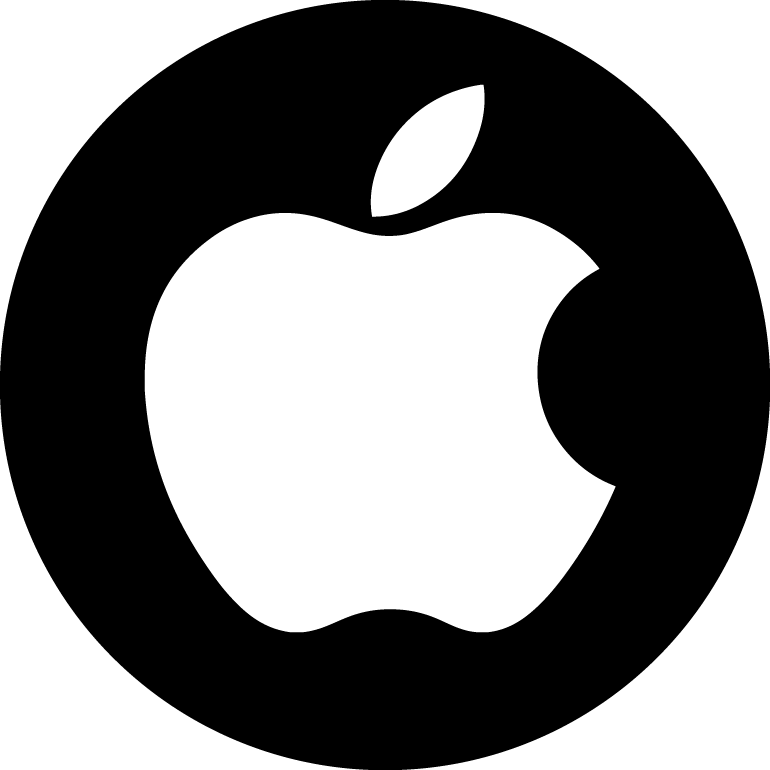

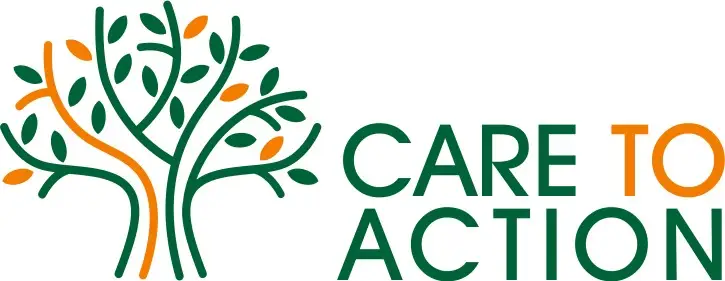
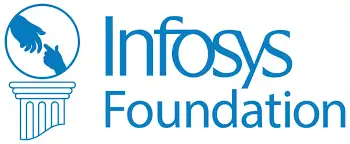


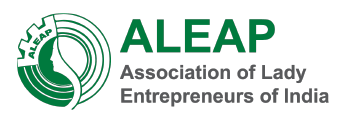


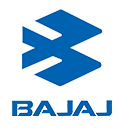
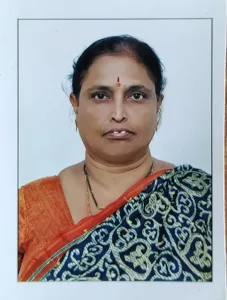
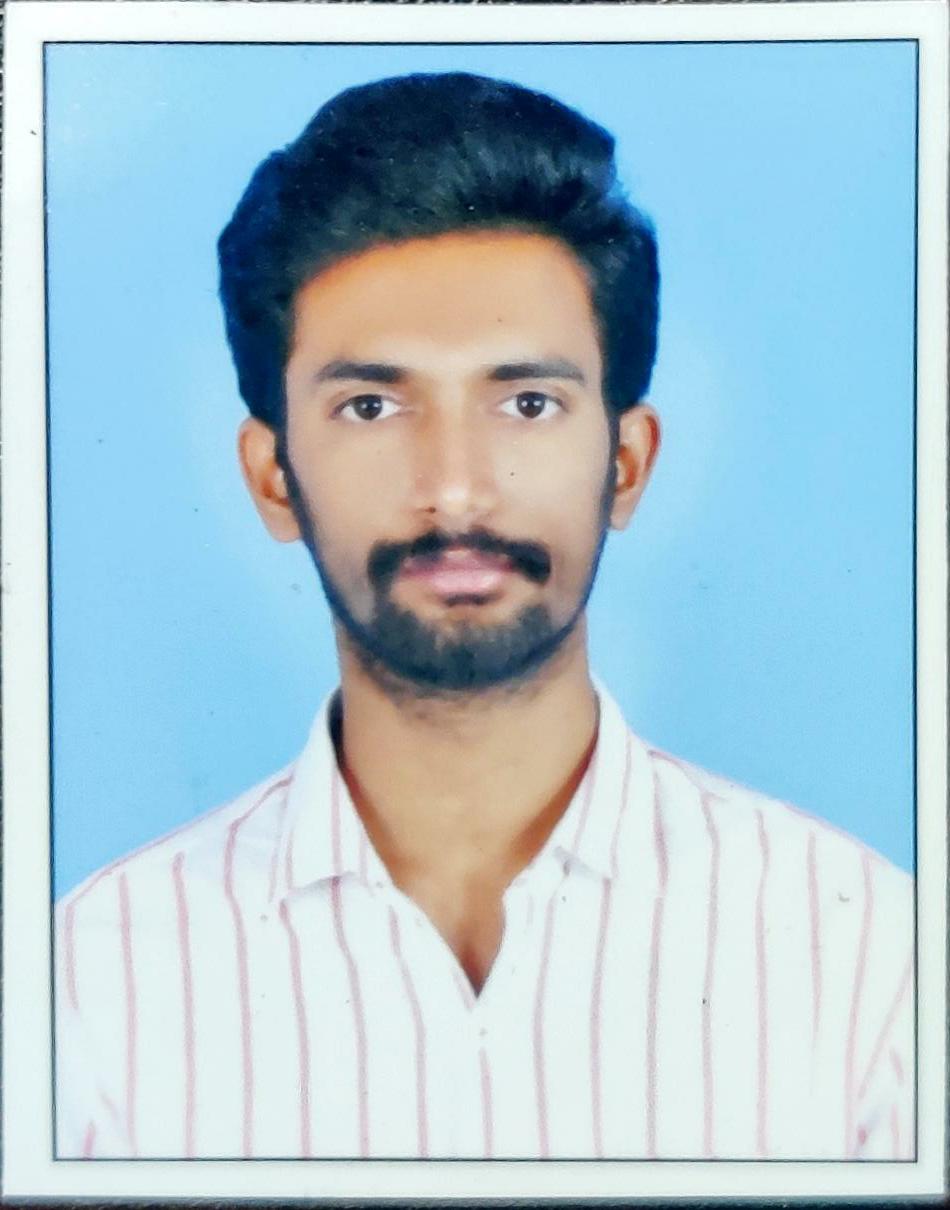
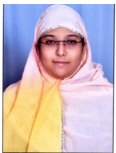
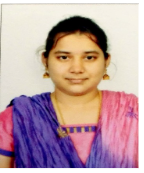
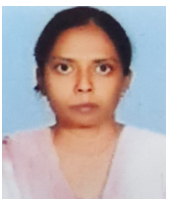
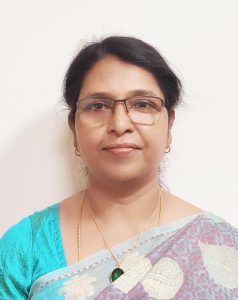
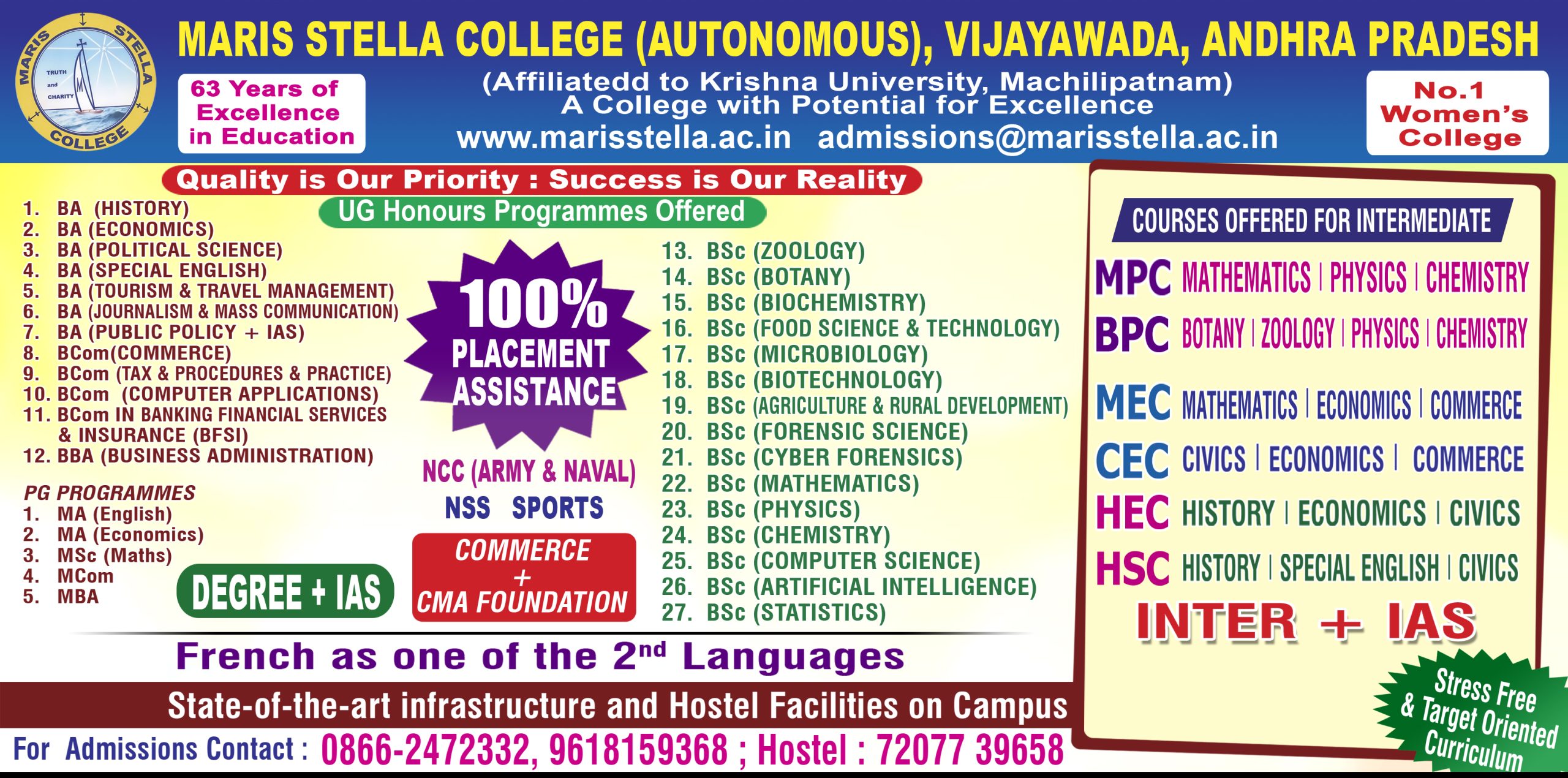
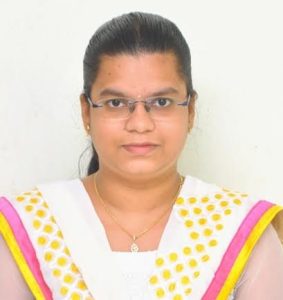
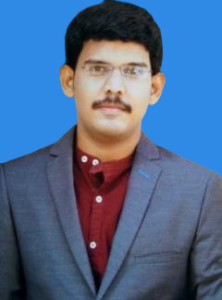
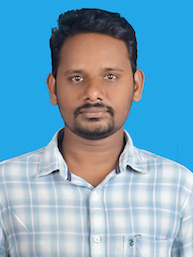
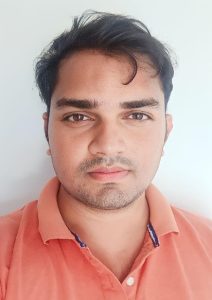
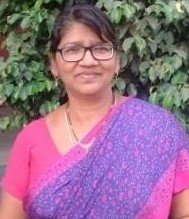
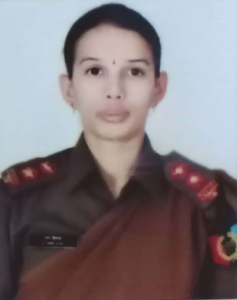
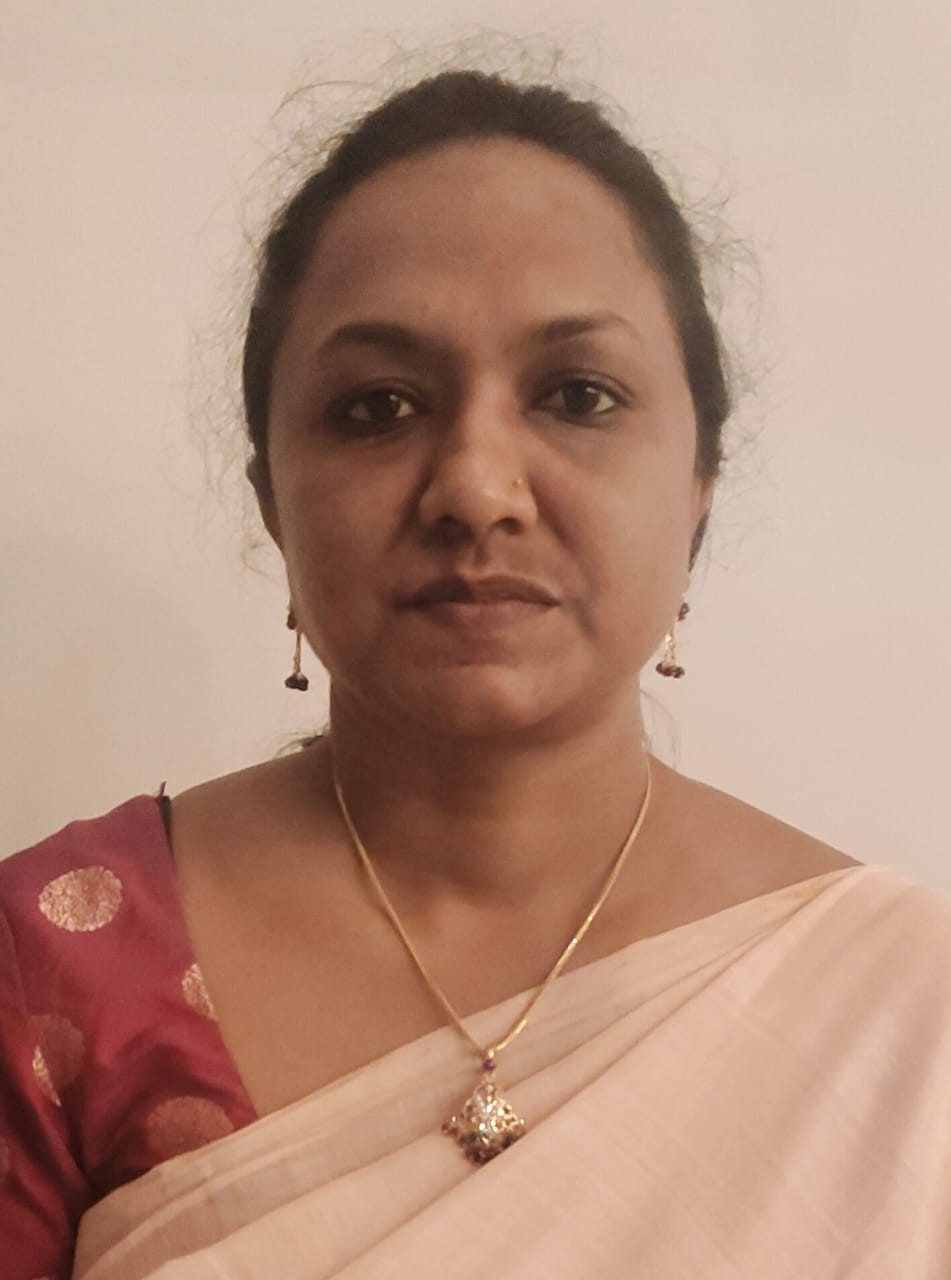
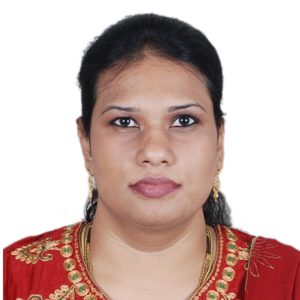
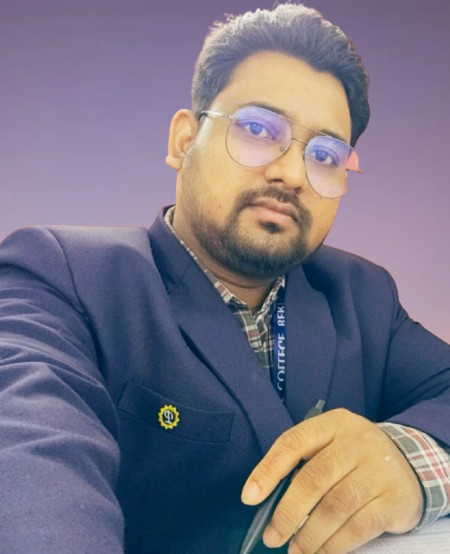
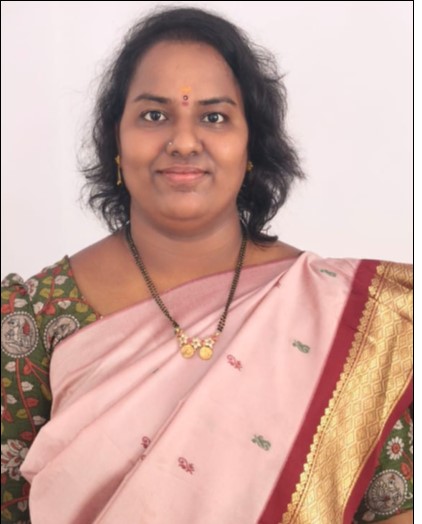
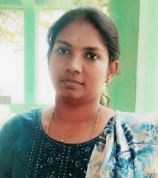
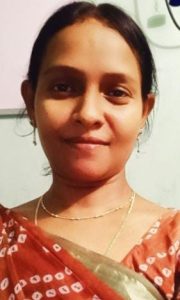
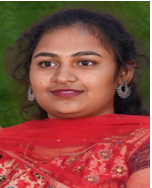
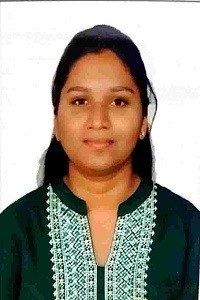
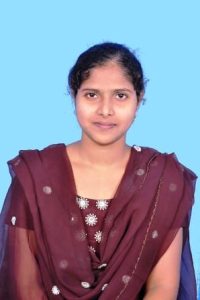
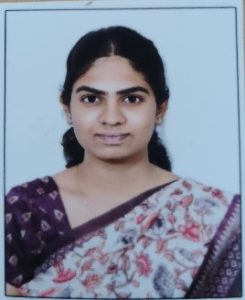
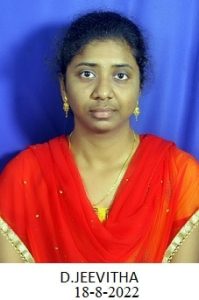
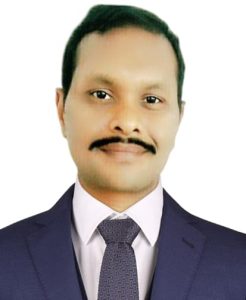
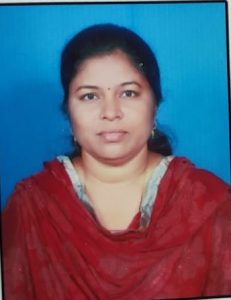
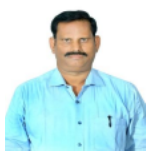
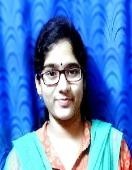
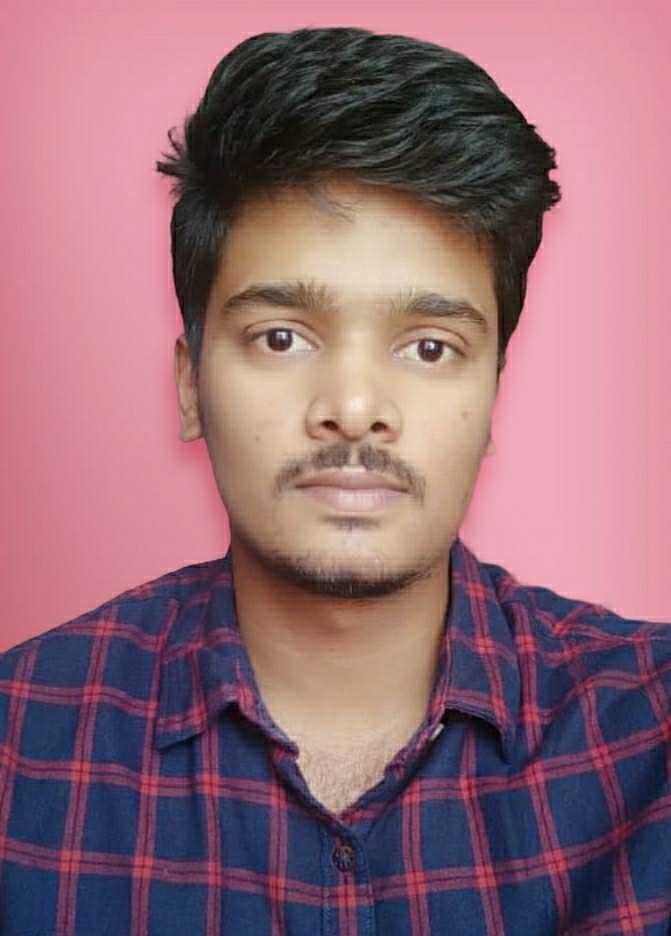
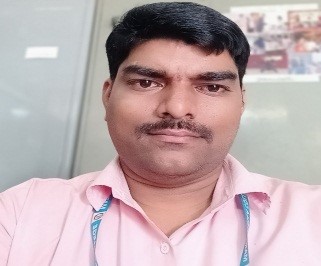
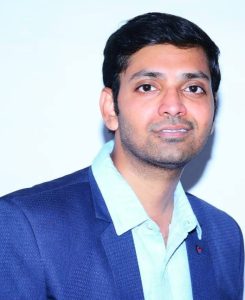
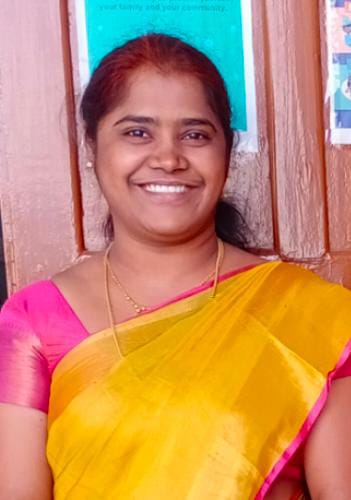
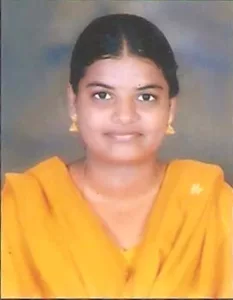
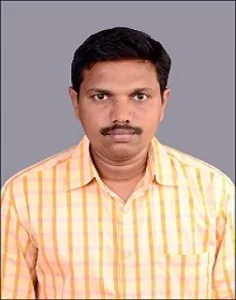
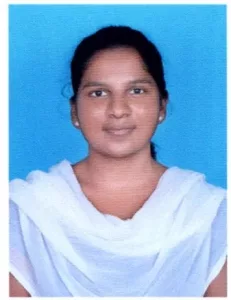
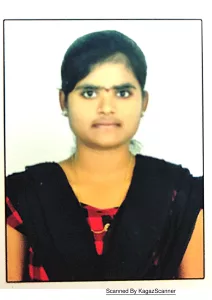
 Maris Stella College launched “English Fellow Program” by US Embassy on 3Oth August 2021
Maris Stella College launched “English Fellow Program” by US Embassy on 3Oth August 2021